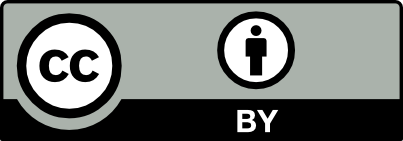Navigating the digital landscape: Assessing the effects of e-learning on students’ learning in higher education
Abdelaziz Bouaaich  1 and Laila Belhaj 2
1 and Laila Belhaj 2
Dept. of Learning, Cognition and Educational Technology, Faculty of Educational Sciences University of Mohammed-V, Rabat, Morocco
Corresponding author: abdelaziz.bouaaich@um5r.ac.ma
DOI: 10.5281/zenodo.14787500
The inevitable digital revolution, which would call for necessary changes in order to meet the new needs of society, has led distance education to the developed states in line with technological innovations. But distance learning is often criticized for its lower success rates and negative results on learners’ learning, even if its advocates argue for its role in the social opening of higher education. This research proposes to study the effects of distance learning on university students’ learning, the challenges and the prospects. It is based on the statistical exploitation of a questionnaire survey. In its design, we have adopted an evaluative approach to the achievement of training objectives, the conduct of courses, and teaching practices. The case of Master 1 educational technology and pedagogical innovation students, which allows us to identify a sub-sample of distance students. To do this it was more important to bring the same type of survey to a category of the same characteristics but from a face-to-face teaching, in order to explore the results of satisfaction in each mode of teaching and establish answers to our research problem. From the results of the quantitative analysis, we found that in face-to-face learning students are more satisfied with their learning than in distance learning. The results show that the satisfaction gap is not very large, which explains why distance learning students are moderately satisfied with their learning, especially since they do not plead a practical insufficiency of the teachers. In addition to an average satisfaction with the course, including ambiguous results regarding the clarity of the course plan, and the management of space, and even an insufficiency at the level of communication, which leads to the lack of human contact (teacher/student) expressed by these students. Nevertheless, we observe that distance learning has only partially impacted the learning of the M1 educational technology and pedagogical innovation students.
Keywords: ICTE, distance education, distance learning, appreciation, EEE, objectives.
Published
2023/06/30
—
Section
Research Papers
16359756
{16359756:8MMVR8WE}
1
apa
50
default
647
https://ijtie.com/wp-content/plugins/zotpress/
%7B%22status%22%3A%22success%22%2C%22updateneeded%22%3Afalse%2C%22instance%22%3Afalse%2C%22meta%22%3A%7B%22request_last%22%3A0%2C%22request_next%22%3A0%2C%22used_cache%22%3Atrue%7D%2C%22data%22%3A%5B%7B%22key%22%3A%228MMVR8WE%22%2C%22library%22%3A%7B%22id%22%3A16359756%7D%2C%22meta%22%3A%7B%22creatorSummary%22%3A%22Bouaichi%20and%20Belhaj%22%2C%22parsedDate%22%3A%222023-06-30%22%2C%22numChildren%22%3A0%7D%2C%22bib%22%3A%22%26lt%3Bdiv%20class%3D%26quot%3Bcsl-bib-body%26quot%3B%20style%3D%26quot%3Bline-height%3A%202%3B%20padding-left%3A%201em%3B%20text-indent%3A-1em%3B%26quot%3B%26gt%3B%5Cn%20%20%26lt%3Bdiv%20class%3D%26quot%3Bcsl-entry%26quot%3B%26gt%3BBouaichi%2C%20A.%2C%20%26amp%3B%20Belhaj%2C%20L.%20%282023%29.%20Navigating%20the%20digital%20landscape%3A%20Assessing%20the%20effects%20of%20e-learning%20on%20students%26%23×2019%3B%20learning%20in%20higher%20education.%20%26lt%3Bi%26gt%3BThe%20International%20Journal%20of%20Technology%2C%20Innovation%2C%20and%20Education%26lt%3B%5C%2Fi%26gt%3B%2C%20%26lt%3Bi%26gt%3B1%26lt%3B%5C%2Fi%26gt%3B%282%29%2C%2051%26%23×2013%3B65.%20%26lt%3Ba%20class%3D%26%23039%3Bzp-DOIURL%26%23039%3B%20href%3D%26%23039%3Bhttps%3A%5C%2F%5C%2Fdoi.org%5C%2F10.5281%5C%2Fzenodo.14787500%26%23039%3B%26gt%3Bhttps%3A%5C%2F%5C%2Fdoi.org%5C%2F10.5281%5C%2Fzenodo.14787500%26lt%3B%5C%2Fa%26gt%3B%26lt%3B%5C%2Fdiv%26gt%3B%5Cn%26lt%3B%5C%2Fdiv%26gt%3B%22%2C%22data%22%3A%7B%22itemType%22%3A%22journalArticle%22%2C%22title%22%3A%22Navigating%20the%20digital%20landscape%3A%20Assessing%20the%20effects%20of%20e-learning%20on%20students%27%20learning%20in%20higher%20education%22%2C%22creators%22%3A%5B%7B%22creatorType%22%3A%22author%22%2C%22firstName%22%3A%22Abdelaaziz%22%2C%22lastName%22%3A%22Bouaichi%22%7D%2C%7B%22creatorType%22%3A%22author%22%2C%22firstName%22%3A%22Laila%22%2C%22lastName%22%3A%22Belhaj%22%7D%5D%2C%22abstractNote%22%3A%22%5Cu5468%5Cu6520%5Cu696e%5Cu6576%5Cu6974%5Cu6162%5Cu6c65%5Cu2064%5Cu6967%5Cu6974%5Cu616c%5Cu2072%5Cu6576%5Cu6f6c%5Cu7574%5Cu696f%5Cu6e2c%5Cu2077%5Cu6869%5Cu6368%5Cu2077%5Cu6f75%5Cu6c64%5Cu2063%5Cu616c%5Cu6c20%5Cu666f%5Cu7220%5Cu6e65%5Cu6365%5Cu7373%5Cu6172%5Cu7920%5Cu6368%5Cu616e%5Cu6765%5Cu7320%5Cu696e%5Cu206f%5Cu7264%5Cu6572%5Cu2074%5Cu6f20%5Cu6d65%5Cu6574%5Cu2074%5Cu6865%5Cu206e%5Cu6577%5Cu206e%5Cu6565%5Cu6473%5Cu206f%5Cu6620%5Cu736f%5Cu6369%5Cu6574%5Cu792c%5Cu2068%5Cu6173%5Cu206c%5Cu6564%5Cu2064%5Cu6973%5Cu7461%5Cu6e63%5Cu6520%5Cu6564%5Cu7563%5Cu6174%5Cu696f%5Cu6e20%5Cu746f%5Cu2074%5Cu6865%5Cu2064%5Cu6576%5Cu656c%5Cu6f70%5Cu6564%5Cu2073%5Cu7461%5Cu7465%5Cu7320%5Cu696e%5Cu206c%5Cu696e%5Cu6520%5Cu7769%5Cu7468%5Cu2074%5Cu6563%5Cu686e%5Cu6f6c%5Cu6f67%5Cu6963%5Cu616c%5Cu2069%5Cu6e6e%5Cu6f76%5Cu6174%5Cu696f%5Cu6e73%5Cu2e20%5Cu4275%5Cu7420%5Cu6469%5Cu7374%5Cu616e%5Cu6365%5Cu206c%5Cu6561%5Cu726e%5Cu696e%5Cu6720%5Cu6973%5Cu206f%5Cu6674%5Cu656e%5Cu2063%5Cu7269%5Cu7469%5Cu6369%5Cu7a65%5Cu6420%5Cu666f%5Cu7220%5Cu6974%5Cu7320%5Cu6c6f%5Cu7765%5Cu7220%5Cu7375%5Cu6363%5Cu6573%5Cu7320%5Cu7261%5Cu7465%5Cu7320%5Cu616e%5Cu6420%5Cu6e65%5Cu6761%5Cu7469%5Cu7665%5Cu2072%5Cu6573%5Cu756c%5Cu7473%5Cu206f%5Cu6e20%5Cu6c65%5Cu6172%5Cu6e65%5Cu7273%5Cu2720%5Cu6c65%5Cu6172%5Cu6e69%5Cu6e67%5Cu2c20%5Cu6576%5Cu656e%5Cu2069%5Cu6620%5Cu6974%5Cu7320%5Cu6164%5Cu766f%5Cu6361%5Cu7465%5Cu7320%5Cu6172%5Cu6775%5Cu6520%5Cu666f%5Cu7220%5Cu6974%5Cu7320%5Cu726f%5Cu6c65%5Cu2069%5Cu6e20%5Cu7468%5Cu6520%5Cu736f%5Cu6369%5Cu616c%5Cu206f%5Cu7065%5Cu6e69%5Cu6e67%5Cu206f%5Cu6620%5Cu6869%5Cu6768%5Cu6572%5Cu2065%5Cu6475%5Cu6361%5Cu7469%5Cu6f6e%5Cu2e20%5Cu5468%5Cu6973%5Cu2072%5Cu6573%5Cu6561%5Cu7263%5Cu6820%5Cu7072%5Cu6f70%5Cu6f73%5Cu6573%5Cu2074%5Cu6f20%5Cu7374%5Cu7564%5Cu7920%5Cu7468%5Cu6520%5Cu6566%5Cu6665%5Cu6374%5Cu7320%5Cu6f66%5Cu2064%5Cu6973%5Cu7461%5Cu6e63%5Cu6520%5Cu6c65%5Cu6172%5Cu6e69%5Cu6e67%5Cu206f%5Cu6e20%5Cu756e%5Cu6976%5Cu6572%5Cu7369%5Cu7479%5Cu2073%5Cu7475%5Cu6465%5Cu6e74%5Cu7327%5Cu206c%5Cu6561%5Cu726e%5Cu696e%5Cu672c%5Cu2074%5Cu6865%5Cu2063%5Cu6861%5Cu6c6c%5Cu656e%5Cu6765%5Cu7320%5Cu616e%5Cu6420%5Cu7468%5Cu6520%5Cu7072%5Cu6f73%5Cu7065%5Cu6374%5Cu732e%5Cu2049%5Cu7420%5Cu6973%5Cu2062%5Cu6173%5Cu6564%5Cu206f%5Cu6e20%5Cu7468%5Cu6520%5Cu7374%5Cu6174%5Cu6973%5Cu7469%5Cu6361%5Cu6c20%5Cu6578%5Cu706c%5Cu6f69%5Cu7461%5Cu7469%5Cu6f6e%5Cu206f%5Cu6620%5Cu6120%5Cu7175%5Cu6573%5Cu7469%5Cu6f6e%5Cu6e61%5Cu6972%5Cu6520%5Cu7375%5Cu7276%5Cu6579%5Cu2e20%5Cu496e%5Cu2069%5Cu7473%5Cu2064%5Cu6573%5Cu6967%5Cu6e2c%5Cu2077%5Cu6520%5Cu6861%5Cu7665%5Cu2061%5Cu646f%5Cu7074%5Cu6564%5Cu2061%5Cu6e20%5Cu6576%5Cu616c%5Cu7561%5Cu7469%5Cu7665%5Cu2061%5Cu7070%5Cu726f%5Cu6163%5Cu6820%5Cu746f%5Cu2074%5Cu6865%5Cu2061%5Cu6368%5Cu6965%5Cu7665%5Cu6d65%5Cu6e74%5Cu206f%5Cu6620%5Cu7472%5Cu6169%5Cu6e69%5Cu6e67%5Cu206f%5Cu626a%5Cu6563%5Cu7469%5Cu7665%5Cu732c%5Cu2074%5Cu6865%5Cu2063%5Cu6f6e%5Cu6475%5Cu6374%5Cu206f%5Cu6620%5Cu636f%5Cu7572%5Cu7365%5Cu732c%5Cu2061%5Cu6e64%5Cu2074%5Cu6561%5Cu6368%5Cu696e%5Cu6720%5Cu7072%5Cu6163%5Cu7469%5Cu6365%5Cu732e%5Cu2054%5Cu6865%5Cu2063%5Cu6173%5Cu6520%5Cu6f66%5Cu204d%5Cu6173%5Cu7465%5Cu7220%5Cu3120%5Cu6564%5Cu7563%5Cu6174%5Cu696f%5Cu6e61%5Cu6c20%5Cu7465%5Cu6368%5Cu6e6f%5Cu6c6f%5Cu6779%5Cu2061%5Cu6e64%5Cu2070%5Cu6564%5Cu6167%5Cu6f67%5Cu6963%5Cu616c%5Cu2069%5Cu6e6e%5Cu6f76%5Cu6174%5Cu696f%5Cu6e20%5Cu7374%5Cu7564%5Cu656e%5Cu7473%5Cu2c20%5Cu7768%5Cu6963%5Cu6820%5Cu616c%5Cu6c6f%5Cu7773%5Cu2075%5Cu7320%5Cu746f%5Cu2069%5Cu6465%5Cu6e74%5Cu6966%5Cu7920%5Cu6120%5Cu7375%5Cu622d%5Cu7361%5Cu6d70%5Cu6c65%5Cu206f%5Cu6620%5Cu6469%5Cu7374%5Cu616e%5Cu6365%5Cu2073%5Cu7475%5Cu6465%5Cu6e74%5Cu732e%5Cu2054%5Cu6f20%5Cu646f%5Cu2074%5Cu6869%5Cu7320%5Cu6974%5Cu2077%5Cu6173%5Cu206d%5Cu6f72%5Cu6520%5Cu696d%5Cu706f%5Cu7274%5Cu616e%5Cu7420%5Cu746f%5Cu2062%5Cu7269%5Cu6e67%5Cu2074%5Cu6865%5Cu2073%5Cu616d%5Cu6520%5Cu7479%5Cu7065%5Cu206f%5Cu6620%5Cu7375%5Cu7276%5Cu6579%5Cu2074%5Cu6f20%5Cu6120%5Cu6361%5Cu7465%5Cu676f%5Cu7279%5Cu206f%5Cu6620%5Cu7468%5Cu6520%5Cu7361%5Cu6d65%5Cu2063%5Cu6861%5Cu7261%5Cu6374%5Cu6572%5Cu6973%5Cu7469%5Cu6373%5Cu2062%5Cu7574%5Cu2066%5Cu726f%5Cu6d20%5Cu6120%5Cu6661%5Cu6365%5Cu2d74%5Cu6f2d%5Cu6661%5Cu6365%5Cu2074%5Cu6561%5Cu6368%5Cu696e%5Cu672c%5Cu2069%5Cu6e20%5Cu6f72%5Cu6465%5Cu7220%5Cu746f%5Cu2065%5Cu7870%5Cu6c6f%5Cu7265%5Cu2074%5Cu6865%5Cu2072%5Cu6573%5Cu756c%5Cu7473%5Cu206f%5Cu6620%5Cu7361%5Cu7469%5Cu7366%5Cu6163%5Cu7469%5Cu6f6e%5Cu2069%5Cu6e20%5Cu6561%5Cu6368%5Cu206d%5Cu6f64%5Cu6520%5Cu6f66%5Cu2074%5Cu6561%5Cu6368%5Cu696e%5Cu6720%5Cu616e%5Cu6420%5Cu6573%5Cu7461%5Cu626c%5Cu6973%5Cu6820%5Cu616e%5Cu7377%5Cu6572%5Cu7320%5Cu746f%5Cu206f%5Cu7572%5Cu2072%5Cu6573%5Cu6561%5Cu7263%5Cu6820%5Cu7072%5Cu6f62%5Cu6c65%5Cu6d2e%5Cu2046%5Cu726f%5Cu6d20%5Cu7468%5Cu6520%5Cu7265%5Cu7375%5Cu6c74%5Cu7320%5Cu6f66%5Cu2074%5Cu6865%5Cu2071%5Cu7561%5Cu6e74%5Cu6974%5Cu6174%5Cu6976%5Cu6520%5Cu616e%5Cu616c%5Cu7973%5Cu6973%5Cu2c20%5Cu7765%5Cu2066%5Cu6f75%5Cu6e64%5Cu2074%5Cu6861%5Cu7420%5Cu696e%5Cu2066%5Cu6163%5Cu652d%5Cu746f%5Cu2d66%5Cu6163%5Cu6520%5Cu6c65%5Cu6172%5Cu6e69%5Cu6e67%5Cu2073%5Cu7475%5Cu6465%5Cu6e74%5Cu7320%5Cu6172%5Cu6520%5Cu6d6f%5Cu7265%5Cu2073%5Cu6174%5Cu6973%5Cu6669%5Cu6564%5Cu2077%5Cu6974%5Cu6820%5Cu7468%5Cu6569%5Cu7220%5Cu6c65%5Cu6172%5Cu6e69%5Cu6e67%5Cu2074%5Cu6861%5Cu6e20%5Cu696e%5Cu2064%5Cu6973%5Cu7461%5Cu6e63%5Cu6520%5Cu6c65%5Cu6172%5Cu6e69%5Cu6e67%5Cu2e20%5Cu5468%5Cu6520%5Cu7265%5Cu7375%5Cu6c74%5Cu7320%5Cu7368%5Cu6f77%5Cu2074%5Cu6861%5Cu7420%5Cu7468%5Cu6520%5Cu7361%5Cu7469%5Cu7366%5Cu6163%5Cu7469%5Cu6f6e%5Cu2067%5Cu6170%5Cu2069%5Cu7320%5Cu6e6f%5Cu7420%5Cu7665%5Cu7279%5Cu206c%5Cu6172%5Cu6765%5Cu2c20%5Cu7768%5Cu6963%5Cu6820%5Cu6578%5Cu706c%5Cu6169%5Cu6e73%5Cu2077%5Cu6879%5Cu2064%5Cu6973%5Cu7461%5Cu6e63%5Cu6520%5Cu6c65%5Cu6172%5Cu6e69%5Cu6e67%5Cu2073%5Cu7475%5Cu6465%5Cu6e74%5Cu7320%5Cu6172%5Cu6520%5Cu6d6f%5Cu6465%5Cu7261%5Cu7465%5Cu6c79%5Cu2073%5Cu6174%5Cu6973%5Cu6669%5Cu6564%5Cu2077%5Cu6974%5Cu6820%5Cu7468%5Cu6569%5Cu7220%5Cu6c65%5Cu6172%5Cu6e69%5Cu6e67%5Cu2c20%5Cu6573%5Cu7065%5Cu6369%5Cu616c%5Cu6c79%5Cu2073%5Cu696e%5Cu6365%5Cu2074%5Cu6865%5Cu7920%5Cu646f%5Cu206e%5Cu6f74%5Cu2070%5Cu6c65%5Cu6164%5Cu2061%5Cu2070%5Cu7261%5Cu6374%5Cu6963%5Cu616c%5Cu2069%5Cu6e73%5Cu7566%5Cu6669%5Cu6369%5Cu656e%5Cu6379%5Cu206f%5Cu6620%5Cu7468%5Cu6520%5Cu7465%5Cu6163%5Cu6865%5Cu7273%5Cu2e20%5Cu496e%5Cu2061%5Cu6464%5Cu6974%5Cu696f%5Cu6e20%5Cu746f%5Cu2061%5Cu6e20%5Cu6176%5Cu6572%5Cu6167%5Cu6520%5Cu7361%5Cu7469%5Cu7366%5Cu6163%5Cu7469%5Cu6f6e%5Cu2077%5Cu6974%5Cu6820%5Cu7468%5Cu6520%5Cu636f%5Cu7572%5Cu7365%5Cu2c20%5Cu696e%5Cu636c%5Cu7564%5Cu696e%5Cu6720%5Cu616d%5Cu6269%5Cu6775%5Cu6f75%5Cu7320%5Cu7265%5Cu7375%5Cu6c74%5Cu7320%5Cu7265%5Cu6761%5Cu7264%5Cu696e%5Cu6720%5Cu7468%5Cu6520%5Cu636c%5Cu6172%5Cu6974%5Cu7920%5Cu6f66%5Cu2074%5Cu6865%5Cu2063%5Cu6f75%5Cu7273%5Cu6520%5Cu706c%5Cu616e%5Cu2c20%5Cu616e%5Cu6420%5Cu7468%5Cu6520%5Cu6d61%5Cu6e61%5Cu6765%5Cu6d65%5Cu6e74%5Cu206f%5Cu6620%5Cu7370%5Cu6163%5Cu652c%5Cu2061%5Cu6e64%5Cu2065%5Cu7665%5Cu6e20%5Cu616e%5Cu2069%5Cu6e73%5Cu7566%5Cu6669%5Cu6369%5Cu656e%5Cu6379%5Cu2061%5Cu7420%5Cu7468%5Cu6520%5Cu6c65%5Cu7665%5Cu6c20%5Cu6f66%5Cu2063%5Cu6f6d%5Cu6d75%5Cu6e69%5Cu6361%5Cu7469%5Cu6f6e%5Cu2c20%5Cu7768%5Cu6963%5Cu6820%5Cu6c65%5Cu6164%5Cu7320%5Cu746f%5Cu2074%5Cu6865%5Cu206c%5Cu6163%5Cu6b20%5Cu6f66%5Cu2068%5Cu756d%5Cu616e%5Cu2063%5Cu6f6e%5Cu7461%5Cu6374%5Cu2028%5Cu7465%5Cu6163%5Cu6865%5Cu722f%5Cu7374%5Cu7564%5Cu656e%5Cu7429%5Cu2065%5Cu7870%5Cu7265%5Cu7373%5Cu6564%5Cu2062%5Cu7920%5Cu7468%5Cu6573%5Cu6520%5Cu7374%5Cu7564%5Cu656e%5Cu7473%5Cu2e20%5Cu4e65%5Cu7665%5Cu7274%5Cu6865%5Cu6c65%5Cu7373%5Cu2c20%5Cu7765%5Cu206f%5Cu6273%5Cu6572%5Cu7665%5Cu2074%5Cu6861%5Cu7420%5Cu6469%5Cu7374%5Cu616e%5Cu6365%5Cu206c%5Cu6561%5Cu726e%5Cu696e%5Cu6720%5Cu6861%5Cu7320%5Cu6f6e%5Cu6c79%5Cu2070%5Cu6172%5Cu7469%5Cu616c%5Cu6c79%5Cu2069%5Cu6d70%5Cu6163%5Cu7465%5Cu6420%5Cu7468%5Cu6520%5Cu6c65%5Cu6172%5Cu6e69%5Cu6e67%5Cu206f%5Cu6620%5Cu7468%5Cu6520%5Cu4d31%5Cu2065%5Cu6475%5Cu6361%5Cu7469%5Cu6f6e%5Cu616c%5Cu2074%5Cu6563%5Cu686e%5Cu6f6c%5Cu6f67%5Cu7920%5Cu616e%5Cu6420%5Cu7065%5Cu6461%5Cu676f%5Cu6769%5Cu6361%5Cu6c20%5Cu696e%5Cu6e6f%5Cu7661%5Cu7469%5Cu6f6e%5Cu2073%5Cu7475%5Cu6465%5Cu6e74%5Cu732e%22%2C%22date%22%3A%222023-06-30%22%2C%22language%22%3A%22en%22%2C%22DOI%22%3A%2210.5281%5C%2Fzenodo.14787500%22%2C%22ISSN%22%3A%222820-7521%22%2C%22url%22%3A%22https%3A%5C%2F%5C%2Fijtie.com%5C%2Fv102%5C%2Fn71%22%2C%22collections%22%3A%5B%5D%2C%22dateModified%22%3A%222025-03-24T17%3A20%3A59Z%22%7D%7D%5D%7D
Bouaichi, A., & Belhaj, L. (2023). Navigating the digital landscape: Assessing the effects of e-learning on students’ learning in higher education.
The International Journal of Technology, Innovation, and Education,
1(2), 51–65.
https://doi.org/10.5281/zenodo.14787500
Chicago
MLA
IEEE
Harvard
Vancouver
APA
Chicago
Chicago
MLA
IEEE
Harvard
Vancouver
APA
16359756
{16359756:8MMVR8WE}
1
chicago-author-date
50
default
647
https://ijtie.com/wp-content/plugins/zotpress/
%7B%22status%22%3A%22success%22%2C%22updateneeded%22%3Afalse%2C%22instance%22%3Afalse%2C%22meta%22%3A%7B%22request_last%22%3A0%2C%22request_next%22%3A0%2C%22used_cache%22%3Atrue%7D%2C%22data%22%3A%5B%7B%22key%22%3A%228MMVR8WE%22%2C%22library%22%3A%7B%22id%22%3A16359756%7D%2C%22meta%22%3A%7B%22creatorSummary%22%3A%22Bouaichi%20and%20Belhaj%22%2C%22parsedDate%22%3A%222023-06-30%22%2C%22numChildren%22%3A0%7D%2C%22bib%22%3A%22%26lt%3Bdiv%20class%3D%26quot%3Bcsl-bib-body%26quot%3B%20style%3D%26quot%3Bline-height%3A%201.35%3B%20padding-left%3A%201em%3B%20text-indent%3A-1em%3B%26quot%3B%26gt%3B%5Cn%20%20%26lt%3Bdiv%20class%3D%26quot%3Bcsl-entry%26quot%3B%26gt%3BBouaichi%2C%20Abdelaaziz%2C%20and%20Laila%20Belhaj.%202023.%20%26%23x201C%3BNavigating%20the%20Digital%20Landscape%3A%20Assessing%20the%20Effects%20of%20e-Learning%20on%20Students%26%23×2019%3B%20Learning%20in%20Higher%20Education.%26%23x201D%3B%20%26lt%3Bi%26gt%3BThe%20International%20Journal%20of%20Technology%2C%20Innovation%2C%20and%20Education%26lt%3B%5C%2Fi%26gt%3B%201%20%282%29%3A%2051%26%23×2013%3B65.%20%26lt%3Ba%20class%3D%26%23039%3Bzp-DOIURL%26%23039%3B%20href%3D%26%23039%3Bhttps%3A%5C%2F%5C%2Fdoi.org%5C%2F10.5281%5C%2Fzenodo.14787500%26%23039%3B%26gt%3Bhttps%3A%5C%2F%5C%2Fdoi.org%5C%2F10.5281%5C%2Fzenodo.14787500%26lt%3B%5C%2Fa%26gt%3B.%26lt%3B%5C%2Fdiv%26gt%3B%5Cn%26lt%3B%5C%2Fdiv%26gt%3B%22%2C%22data%22%3A%7B%22itemType%22%3A%22journalArticle%22%2C%22title%22%3A%22Navigating%20the%20digital%20landscape%3A%20Assessing%20the%20effects%20of%20e-learning%20on%20students%27%20learning%20in%20higher%20education%22%2C%22creators%22%3A%5B%7B%22creatorType%22%3A%22author%22%2C%22firstName%22%3A%22Abdelaaziz%22%2C%22lastName%22%3A%22Bouaichi%22%7D%2C%7B%22creatorType%22%3A%22author%22%2C%22firstName%22%3A%22Laila%22%2C%22lastName%22%3A%22Belhaj%22%7D%5D%2C%22abstractNote%22%3A%22%5Cu5468%5Cu6520%5Cu696e%5Cu6576%5Cu6974%5Cu6162%5Cu6c65%5Cu2064%5Cu6967%5Cu6974%5Cu616c%5Cu2072%5Cu6576%5Cu6f6c%5Cu7574%5Cu696f%5Cu6e2c%5Cu2077%5Cu6869%5Cu6368%5Cu2077%5Cu6f75%5Cu6c64%5Cu2063%5Cu616c%5Cu6c20%5Cu666f%5Cu7220%5Cu6e65%5Cu6365%5Cu7373%5Cu6172%5Cu7920%5Cu6368%5Cu616e%5Cu6765%5Cu7320%5Cu696e%5Cu206f%5Cu7264%5Cu6572%5Cu2074%5Cu6f20%5Cu6d65%5Cu6574%5Cu2074%5Cu6865%5Cu206e%5Cu6577%5Cu206e%5Cu6565%5Cu6473%5Cu206f%5Cu6620%5Cu736f%5Cu6369%5Cu6574%5Cu792c%5Cu2068%5Cu6173%5Cu206c%5Cu6564%5Cu2064%5Cu6973%5Cu7461%5Cu6e63%5Cu6520%5Cu6564%5Cu7563%5Cu6174%5Cu696f%5Cu6e20%5Cu746f%5Cu2074%5Cu6865%5Cu2064%5Cu6576%5Cu656c%5Cu6f70%5Cu6564%5Cu2073%5Cu7461%5Cu7465%5Cu7320%5Cu696e%5Cu206c%5Cu696e%5Cu6520%5Cu7769%5Cu7468%5Cu2074%5Cu6563%5Cu686e%5Cu6f6c%5Cu6f67%5Cu6963%5Cu616c%5Cu2069%5Cu6e6e%5Cu6f76%5Cu6174%5Cu696f%5Cu6e73%5Cu2e20%5Cu4275%5Cu7420%5Cu6469%5Cu7374%5Cu616e%5Cu6365%5Cu206c%5Cu6561%5Cu726e%5Cu696e%5Cu6720%5Cu6973%5Cu206f%5Cu6674%5Cu656e%5Cu2063%5Cu7269%5Cu7469%5Cu6369%5Cu7a65%5Cu6420%5Cu666f%5Cu7220%5Cu6974%5Cu7320%5Cu6c6f%5Cu7765%5Cu7220%5Cu7375%5Cu6363%5Cu6573%5Cu7320%5Cu7261%5Cu7465%5Cu7320%5Cu616e%5Cu6420%5Cu6e65%5Cu6761%5Cu7469%5Cu7665%5Cu2072%5Cu6573%5Cu756c%5Cu7473%5Cu206f%5Cu6e20%5Cu6c65%5Cu6172%5Cu6e65%5Cu7273%5Cu2720%5Cu6c65%5Cu6172%5Cu6e69%5Cu6e67%5Cu2c20%5Cu6576%5Cu656e%5Cu2069%5Cu6620%5Cu6974%5Cu7320%5Cu6164%5Cu766f%5Cu6361%5Cu7465%5Cu7320%5Cu6172%5Cu6775%5Cu6520%5Cu666f%5Cu7220%5Cu6974%5Cu7320%5Cu726f%5Cu6c65%5Cu2069%5Cu6e20%5Cu7468%5Cu6520%5Cu736f%5Cu6369%5Cu616c%5Cu206f%5Cu7065%5Cu6e69%5Cu6e67%5Cu206f%5Cu6620%5Cu6869%5Cu6768%5Cu6572%5Cu2065%5Cu6475%5Cu6361%5Cu7469%5Cu6f6e%5Cu2e20%5Cu5468%5Cu6973%5Cu2072%5Cu6573%5Cu6561%5Cu7263%5Cu6820%5Cu7072%5Cu6f70%5Cu6f73%5Cu6573%5Cu2074%5Cu6f20%5Cu7374%5Cu7564%5Cu7920%5Cu7468%5Cu6520%5Cu6566%5Cu6665%5Cu6374%5Cu7320%5Cu6f66%5Cu2064%5Cu6973%5Cu7461%5Cu6e63%5Cu6520%5Cu6c65%5Cu6172%5Cu6e69%5Cu6e67%5Cu206f%5Cu6e20%5Cu756e%5Cu6976%5Cu6572%5Cu7369%5Cu7479%5Cu2073%5Cu7475%5Cu6465%5Cu6e74%5Cu7327%5Cu206c%5Cu6561%5Cu726e%5Cu696e%5Cu672c%5Cu2074%5Cu6865%5Cu2063%5Cu6861%5Cu6c6c%5Cu656e%5Cu6765%5Cu7320%5Cu616e%5Cu6420%5Cu7468%5Cu6520%5Cu7072%5Cu6f73%5Cu7065%5Cu6374%5Cu732e%5Cu2049%5Cu7420%5Cu6973%5Cu2062%5Cu6173%5Cu6564%5Cu206f%5Cu6e20%5Cu7468%5Cu6520%5Cu7374%5Cu6174%5Cu6973%5Cu7469%5Cu6361%5Cu6c20%5Cu6578%5Cu706c%5Cu6f69%5Cu7461%5Cu7469%5Cu6f6e%5Cu206f%5Cu6620%5Cu6120%5Cu7175%5Cu6573%5Cu7469%5Cu6f6e%5Cu6e61%5Cu6972%5Cu6520%5Cu7375%5Cu7276%5Cu6579%5Cu2e20%5Cu496e%5Cu2069%5Cu7473%5Cu2064%5Cu6573%5Cu6967%5Cu6e2c%5Cu2077%5Cu6520%5Cu6861%5Cu7665%5Cu2061%5Cu646f%5Cu7074%5Cu6564%5Cu2061%5Cu6e20%5Cu6576%5Cu616c%5Cu7561%5Cu7469%5Cu7665%5Cu2061%5Cu7070%5Cu726f%5Cu6163%5Cu6820%5Cu746f%5Cu2074%5Cu6865%5Cu2061%5Cu6368%5Cu6965%5Cu7665%5Cu6d65%5Cu6e74%5Cu206f%5Cu6620%5Cu7472%5Cu6169%5Cu6e69%5Cu6e67%5Cu206f%5Cu626a%5Cu6563%5Cu7469%5Cu7665%5Cu732c%5Cu2074%5Cu6865%5Cu2063%5Cu6f6e%5Cu6475%5Cu6374%5Cu206f%5Cu6620%5Cu636f%5Cu7572%5Cu7365%5Cu732c%5Cu2061%5Cu6e64%5Cu2074%5Cu6561%5Cu6368%5Cu696e%5Cu6720%5Cu7072%5Cu6163%5Cu7469%5Cu6365%5Cu732e%5Cu2054%5Cu6865%5Cu2063%5Cu6173%5Cu6520%5Cu6f66%5Cu204d%5Cu6173%5Cu7465%5Cu7220%5Cu3120%5Cu6564%5Cu7563%5Cu6174%5Cu696f%5Cu6e61%5Cu6c20%5Cu7465%5Cu6368%5Cu6e6f%5Cu6c6f%5Cu6779%5Cu2061%5Cu6e64%5Cu2070%5Cu6564%5Cu6167%5Cu6f67%5Cu6963%5Cu616c%5Cu2069%5Cu6e6e%5Cu6f76%5Cu6174%5Cu696f%5Cu6e20%5Cu7374%5Cu7564%5Cu656e%5Cu7473%5Cu2c20%5Cu7768%5Cu6963%5Cu6820%5Cu616c%5Cu6c6f%5Cu7773%5Cu2075%5Cu7320%5Cu746f%5Cu2069%5Cu6465%5Cu6e74%5Cu6966%5Cu7920%5Cu6120%5Cu7375%5Cu622d%5Cu7361%5Cu6d70%5Cu6c65%5Cu206f%5Cu6620%5Cu6469%5Cu7374%5Cu616e%5Cu6365%5Cu2073%5Cu7475%5Cu6465%5Cu6e74%5Cu732e%5Cu2054%5Cu6f20%5Cu646f%5Cu2074%5Cu6869%5Cu7320%5Cu6974%5Cu2077%5Cu6173%5Cu206d%5Cu6f72%5Cu6520%5Cu696d%5Cu706f%5Cu7274%5Cu616e%5Cu7420%5Cu746f%5Cu2062%5Cu7269%5Cu6e67%5Cu2074%5Cu6865%5Cu2073%5Cu616d%5Cu6520%5Cu7479%5Cu7065%5Cu206f%5Cu6620%5Cu7375%5Cu7276%5Cu6579%5Cu2074%5Cu6f20%5Cu6120%5Cu6361%5Cu7465%5Cu676f%5Cu7279%5Cu206f%5Cu6620%5Cu7468%5Cu6520%5Cu7361%5Cu6d65%5Cu2063%5Cu6861%5Cu7261%5Cu6374%5Cu6572%5Cu6973%5Cu7469%5Cu6373%5Cu2062%5Cu7574%5Cu2066%5Cu726f%5Cu6d20%5Cu6120%5Cu6661%5Cu6365%5Cu2d74%5Cu6f2d%5Cu6661%5Cu6365%5Cu2074%5Cu6561%5Cu6368%5Cu696e%5Cu672c%5Cu2069%5Cu6e20%5Cu6f72%5Cu6465%5Cu7220%5Cu746f%5Cu2065%5Cu7870%5Cu6c6f%5Cu7265%5Cu2074%5Cu6865%5Cu2072%5Cu6573%5Cu756c%5Cu7473%5Cu206f%5Cu6620%5Cu7361%5Cu7469%5Cu7366%5Cu6163%5Cu7469%5Cu6f6e%5Cu2069%5Cu6e20%5Cu6561%5Cu6368%5Cu206d%5Cu6f64%5Cu6520%5Cu6f66%5Cu2074%5Cu6561%5Cu6368%5Cu696e%5Cu6720%5Cu616e%5Cu6420%5Cu6573%5Cu7461%5Cu626c%5Cu6973%5Cu6820%5Cu616e%5Cu7377%5Cu6572%5Cu7320%5Cu746f%5Cu206f%5Cu7572%5Cu2072%5Cu6573%5Cu6561%5Cu7263%5Cu6820%5Cu7072%5Cu6f62%5Cu6c65%5Cu6d2e%5Cu2046%5Cu726f%5Cu6d20%5Cu7468%5Cu6520%5Cu7265%5Cu7375%5Cu6c74%5Cu7320%5Cu6f66%5Cu2074%5Cu6865%5Cu2071%5Cu7561%5Cu6e74%5Cu6974%5Cu6174%5Cu6976%5Cu6520%5Cu616e%5Cu616c%5Cu7973%5Cu6973%5Cu2c20%5Cu7765%5Cu2066%5Cu6f75%5Cu6e64%5Cu2074%5Cu6861%5Cu7420%5Cu696e%5Cu2066%5Cu6163%5Cu652d%5Cu746f%5Cu2d66%5Cu6163%5Cu6520%5Cu6c65%5Cu6172%5Cu6e69%5Cu6e67%5Cu2073%5Cu7475%5Cu6465%5Cu6e74%5Cu7320%5Cu6172%5Cu6520%5Cu6d6f%5Cu7265%5Cu2073%5Cu6174%5Cu6973%5Cu6669%5Cu6564%5Cu2077%5Cu6974%5Cu6820%5Cu7468%5Cu6569%5Cu7220%5Cu6c65%5Cu6172%5Cu6e69%5Cu6e67%5Cu2074%5Cu6861%5Cu6e20%5Cu696e%5Cu2064%5Cu6973%5Cu7461%5Cu6e63%5Cu6520%5Cu6c65%5Cu6172%5Cu6e69%5Cu6e67%5Cu2e20%5Cu5468%5Cu6520%5Cu7265%5Cu7375%5Cu6c74%5Cu7320%5Cu7368%5Cu6f77%5Cu2074%5Cu6861%5Cu7420%5Cu7468%5Cu6520%5Cu7361%5Cu7469%5Cu7366%5Cu6163%5Cu7469%5Cu6f6e%5Cu2067%5Cu6170%5Cu2069%5Cu7320%5Cu6e6f%5Cu7420%5Cu7665%5Cu7279%5Cu206c%5Cu6172%5Cu6765%5Cu2c20%5Cu7768%5Cu6963%5Cu6820%5Cu6578%5Cu706c%5Cu6169%5Cu6e73%5Cu2077%5Cu6879%5Cu2064%5Cu6973%5Cu7461%5Cu6e63%5Cu6520%5Cu6c65%5Cu6172%5Cu6e69%5Cu6e67%5Cu2073%5Cu7475%5Cu6465%5Cu6e74%5Cu7320%5Cu6172%5Cu6520%5Cu6d6f%5Cu6465%5Cu7261%5Cu7465%5Cu6c79%5Cu2073%5Cu6174%5Cu6973%5Cu6669%5Cu6564%5Cu2077%5Cu6974%5Cu6820%5Cu7468%5Cu6569%5Cu7220%5Cu6c65%5Cu6172%5Cu6e69%5Cu6e67%5Cu2c20%5Cu6573%5Cu7065%5Cu6369%5Cu616c%5Cu6c79%5Cu2073%5Cu696e%5Cu6365%5Cu2074%5Cu6865%5Cu7920%5Cu646f%5Cu206e%5Cu6f74%5Cu2070%5Cu6c65%5Cu6164%5Cu2061%5Cu2070%5Cu7261%5Cu6374%5Cu6963%5Cu616c%5Cu2069%5Cu6e73%5Cu7566%5Cu6669%5Cu6369%5Cu656e%5Cu6379%5Cu206f%5Cu6620%5Cu7468%5Cu6520%5Cu7465%5Cu6163%5Cu6865%5Cu7273%5Cu2e20%5Cu496e%5Cu2061%5Cu6464%5Cu6974%5Cu696f%5Cu6e20%5Cu746f%5Cu2061%5Cu6e20%5Cu6176%5Cu6572%5Cu6167%5Cu6520%5Cu7361%5Cu7469%5Cu7366%5Cu6163%5Cu7469%5Cu6f6e%5Cu2077%5Cu6974%5Cu6820%5Cu7468%5Cu6520%5Cu636f%5Cu7572%5Cu7365%5Cu2c20%5Cu696e%5Cu636c%5Cu7564%5Cu696e%5Cu6720%5Cu616d%5Cu6269%5Cu6775%5Cu6f75%5Cu7320%5Cu7265%5Cu7375%5Cu6c74%5Cu7320%5Cu7265%5Cu6761%5Cu7264%5Cu696e%5Cu6720%5Cu7468%5Cu6520%5Cu636c%5Cu6172%5Cu6974%5Cu7920%5Cu6f66%5Cu2074%5Cu6865%5Cu2063%5Cu6f75%5Cu7273%5Cu6520%5Cu706c%5Cu616e%5Cu2c20%5Cu616e%5Cu6420%5Cu7468%5Cu6520%5Cu6d61%5Cu6e61%5Cu6765%5Cu6d65%5Cu6e74%5Cu206f%5Cu6620%5Cu7370%5Cu6163%5Cu652c%5Cu2061%5Cu6e64%5Cu2065%5Cu7665%5Cu6e20%5Cu616e%5Cu2069%5Cu6e73%5Cu7566%5Cu6669%5Cu6369%5Cu656e%5Cu6379%5Cu2061%5Cu7420%5Cu7468%5Cu6520%5Cu6c65%5Cu7665%5Cu6c20%5Cu6f66%5Cu2063%5Cu6f6d%5Cu6d75%5Cu6e69%5Cu6361%5Cu7469%5Cu6f6e%5Cu2c20%5Cu7768%5Cu6963%5Cu6820%5Cu6c65%5Cu6164%5Cu7320%5Cu746f%5Cu2074%5Cu6865%5Cu206c%5Cu6163%5Cu6b20%5Cu6f66%5Cu2068%5Cu756d%5Cu616e%5Cu2063%5Cu6f6e%5Cu7461%5Cu6374%5Cu2028%5Cu7465%5Cu6163%5Cu6865%5Cu722f%5Cu7374%5Cu7564%5Cu656e%5Cu7429%5Cu2065%5Cu7870%5Cu7265%5Cu7373%5Cu6564%5Cu2062%5Cu7920%5Cu7468%5Cu6573%5Cu6520%5Cu7374%5Cu7564%5Cu656e%5Cu7473%5Cu2e20%5Cu4e65%5Cu7665%5Cu7274%5Cu6865%5Cu6c65%5Cu7373%5Cu2c20%5Cu7765%5Cu206f%5Cu6273%5Cu6572%5Cu7665%5Cu2074%5Cu6861%5Cu7420%5Cu6469%5Cu7374%5Cu616e%5Cu6365%5Cu206c%5Cu6561%5Cu726e%5Cu696e%5Cu6720%5Cu6861%5Cu7320%5Cu6f6e%5Cu6c79%5Cu2070%5Cu6172%5Cu7469%5Cu616c%5Cu6c79%5Cu2069%5Cu6d70%5Cu6163%5Cu7465%5Cu6420%5Cu7468%5Cu6520%5Cu6c65%5Cu6172%5Cu6e69%5Cu6e67%5Cu206f%5Cu6620%5Cu7468%5Cu6520%5Cu4d31%5Cu2065%5Cu6475%5Cu6361%5Cu7469%5Cu6f6e%5Cu616c%5Cu2074%5Cu6563%5Cu686e%5Cu6f6c%5Cu6f67%5Cu7920%5Cu616e%5Cu6420%5Cu7065%5Cu6461%5Cu676f%5Cu6769%5Cu6361%5Cu6c20%5Cu696e%5Cu6e6f%5Cu7661%5Cu7469%5Cu6f6e%5Cu2073%5Cu7475%5Cu6465%5Cu6e74%5Cu732e%22%2C%22date%22%3A%222023-06-30%22%2C%22language%22%3A%22en%22%2C%22DOI%22%3A%2210.5281%5C%2Fzenodo.14787500%22%2C%22ISSN%22%3A%222820-7521%22%2C%22url%22%3A%22https%3A%5C%2F%5C%2Fijtie.com%5C%2Fv102%5C%2Fn71%22%2C%22collections%22%3A%5B%5D%2C%22dateModified%22%3A%222025-03-24T17%3A20%3A59Z%22%7D%7D%5D%7D
Bouaichi, Abdelaaziz, and Laila Belhaj. 2023. “Navigating the Digital Landscape: Assessing the Effects of e-Learning on Students’ Learning in Higher Education.”
The International Journal of Technology, Innovation, and Education 1 (2): 51–65.
https://doi.org/10.5281/zenodo.14787500.
16359756
{16359756:8MMVR8WE}
1
modern-language-association
50
default
647
https://ijtie.com/wp-content/plugins/zotpress/
%7B%22status%22%3A%22success%22%2C%22updateneeded%22%3Afalse%2C%22instance%22%3Afalse%2C%22meta%22%3A%7B%22request_last%22%3A0%2C%22request_next%22%3A0%2C%22used_cache%22%3Atrue%7D%2C%22data%22%3A%5B%7B%22key%22%3A%228MMVR8WE%22%2C%22library%22%3A%7B%22id%22%3A16359756%7D%2C%22meta%22%3A%7B%22creatorSummary%22%3A%22Bouaichi%20and%20Belhaj%22%2C%22parsedDate%22%3A%222023-06-30%22%2C%22numChildren%22%3A0%7D%2C%22bib%22%3A%22%26lt%3Bdiv%20class%3D%26quot%3Bcsl-bib-body%26quot%3B%20style%3D%26quot%3Bline-height%3A%202%3B%20padding-left%3A%201em%3B%20text-indent%3A-1em%3B%26quot%3B%26gt%3B%5Cn%20%20%26lt%3Bdiv%20class%3D%26quot%3Bcsl-entry%26quot%3B%26gt%3BBouaichi%2C%20Abdelaaziz%2C%20and%20Laila%20Belhaj.%20%26%23x201C%3BNavigating%20the%20Digital%20Landscape%3A%20Assessing%20the%20Effects%20of%20e-Learning%20on%20Students%26%23×2019%3B%20Learning%20in%20Higher%20Education.%26%23x201D%3B%20%26lt%3Bi%26gt%3BThe%20International%20Journal%20of%20Technology%2C%20Innovation%2C%20and%20Education%26lt%3B%5C%2Fi%26gt%3B%2C%20vol.%201%2C%20no.%202%2C%20June%202023%2C%20pp.%2051%26%23×2013%3B65%2C%20%26lt%3Ba%20class%3D%26%23039%3Bzp-DOIURL%26%23039%3B%20href%3D%26%23039%3Bhttps%3A%5C%2F%5C%2Fdoi.org%5C%2F10.5281%5C%2Fzenodo.14787500%26%23039%3B%26gt%3Bhttps%3A%5C%2F%5C%2Fdoi.org%5C%2F10.5281%5C%2Fzenodo.14787500%26lt%3B%5C%2Fa%26gt%3B.%26lt%3B%5C%2Fdiv%26gt%3B%5Cn%26lt%3B%5C%2Fdiv%26gt%3B%22%2C%22data%22%3A%7B%22itemType%22%3A%22journalArticle%22%2C%22title%22%3A%22Navigating%20the%20digital%20landscape%3A%20Assessing%20the%20effects%20of%20e-learning%20on%20students%27%20learning%20in%20higher%20education%22%2C%22creators%22%3A%5B%7B%22creatorType%22%3A%22author%22%2C%22firstName%22%3A%22Abdelaaziz%22%2C%22lastName%22%3A%22Bouaichi%22%7D%2C%7B%22creatorType%22%3A%22author%22%2C%22firstName%22%3A%22Laila%22%2C%22lastName%22%3A%22Belhaj%22%7D%5D%2C%22abstractNote%22%3A%22%5Cu5468%5Cu6520%5Cu696e%5Cu6576%5Cu6974%5Cu6162%5Cu6c65%5Cu2064%5Cu6967%5Cu6974%5Cu616c%5Cu2072%5Cu6576%5Cu6f6c%5Cu7574%5Cu696f%5Cu6e2c%5Cu2077%5Cu6869%5Cu6368%5Cu2077%5Cu6f75%5Cu6c64%5Cu2063%5Cu616c%5Cu6c20%5Cu666f%5Cu7220%5Cu6e65%5Cu6365%5Cu7373%5Cu6172%5Cu7920%5Cu6368%5Cu616e%5Cu6765%5Cu7320%5Cu696e%5Cu206f%5Cu7264%5Cu6572%5Cu2074%5Cu6f20%5Cu6d65%5Cu6574%5Cu2074%5Cu6865%5Cu206e%5Cu6577%5Cu206e%5Cu6565%5Cu6473%5Cu206f%5Cu6620%5Cu736f%5Cu6369%5Cu6574%5Cu792c%5Cu2068%5Cu6173%5Cu206c%5Cu6564%5Cu2064%5Cu6973%5Cu7461%5Cu6e63%5Cu6520%5Cu6564%5Cu7563%5Cu6174%5Cu696f%5Cu6e20%5Cu746f%5Cu2074%5Cu6865%5Cu2064%5Cu6576%5Cu656c%5Cu6f70%5Cu6564%5Cu2073%5Cu7461%5Cu7465%5Cu7320%5Cu696e%5Cu206c%5Cu696e%5Cu6520%5Cu7769%5Cu7468%5Cu2074%5Cu6563%5Cu686e%5Cu6f6c%5Cu6f67%5Cu6963%5Cu616c%5Cu2069%5Cu6e6e%5Cu6f76%5Cu6174%5Cu696f%5Cu6e73%5Cu2e20%5Cu4275%5Cu7420%5Cu6469%5Cu7374%5Cu616e%5Cu6365%5Cu206c%5Cu6561%5Cu726e%5Cu696e%5Cu6720%5Cu6973%5Cu206f%5Cu6674%5Cu656e%5Cu2063%5Cu7269%5Cu7469%5Cu6369%5Cu7a65%5Cu6420%5Cu666f%5Cu7220%5Cu6974%5Cu7320%5Cu6c6f%5Cu7765%5Cu7220%5Cu7375%5Cu6363%5Cu6573%5Cu7320%5Cu7261%5Cu7465%5Cu7320%5Cu616e%5Cu6420%5Cu6e65%5Cu6761%5Cu7469%5Cu7665%5Cu2072%5Cu6573%5Cu756c%5Cu7473%5Cu206f%5Cu6e20%5Cu6c65%5Cu6172%5Cu6e65%5Cu7273%5Cu2720%5Cu6c65%5Cu6172%5Cu6e69%5Cu6e67%5Cu2c20%5Cu6576%5Cu656e%5Cu2069%5Cu6620%5Cu6974%5Cu7320%5Cu6164%5Cu766f%5Cu6361%5Cu7465%5Cu7320%5Cu6172%5Cu6775%5Cu6520%5Cu666f%5Cu7220%5Cu6974%5Cu7320%5Cu726f%5Cu6c65%5Cu2069%5Cu6e20%5Cu7468%5Cu6520%5Cu736f%5Cu6369%5Cu616c%5Cu206f%5Cu7065%5Cu6e69%5Cu6e67%5Cu206f%5Cu6620%5Cu6869%5Cu6768%5Cu6572%5Cu2065%5Cu6475%5Cu6361%5Cu7469%5Cu6f6e%5Cu2e20%5Cu5468%5Cu6973%5Cu2072%5Cu6573%5Cu6561%5Cu7263%5Cu6820%5Cu7072%5Cu6f70%5Cu6f73%5Cu6573%5Cu2074%5Cu6f20%5Cu7374%5Cu7564%5Cu7920%5Cu7468%5Cu6520%5Cu6566%5Cu6665%5Cu6374%5Cu7320%5Cu6f66%5Cu2064%5Cu6973%5Cu7461%5Cu6e63%5Cu6520%5Cu6c65%5Cu6172%5Cu6e69%5Cu6e67%5Cu206f%5Cu6e20%5Cu756e%5Cu6976%5Cu6572%5Cu7369%5Cu7479%5Cu2073%5Cu7475%5Cu6465%5Cu6e74%5Cu7327%5Cu206c%5Cu6561%5Cu726e%5Cu696e%5Cu672c%5Cu2074%5Cu6865%5Cu2063%5Cu6861%5Cu6c6c%5Cu656e%5Cu6765%5Cu7320%5Cu616e%5Cu6420%5Cu7468%5Cu6520%5Cu7072%5Cu6f73%5Cu7065%5Cu6374%5Cu732e%5Cu2049%5Cu7420%5Cu6973%5Cu2062%5Cu6173%5Cu6564%5Cu206f%5Cu6e20%5Cu7468%5Cu6520%5Cu7374%5Cu6174%5Cu6973%5Cu7469%5Cu6361%5Cu6c20%5Cu6578%5Cu706c%5Cu6f69%5Cu7461%5Cu7469%5Cu6f6e%5Cu206f%5Cu6620%5Cu6120%5Cu7175%5Cu6573%5Cu7469%5Cu6f6e%5Cu6e61%5Cu6972%5Cu6520%5Cu7375%5Cu7276%5Cu6579%5Cu2e20%5Cu496e%5Cu2069%5Cu7473%5Cu2064%5Cu6573%5Cu6967%5Cu6e2c%5Cu2077%5Cu6520%5Cu6861%5Cu7665%5Cu2061%5Cu646f%5Cu7074%5Cu6564%5Cu2061%5Cu6e20%5Cu6576%5Cu616c%5Cu7561%5Cu7469%5Cu7665%5Cu2061%5Cu7070%5Cu726f%5Cu6163%5Cu6820%5Cu746f%5Cu2074%5Cu6865%5Cu2061%5Cu6368%5Cu6965%5Cu7665%5Cu6d65%5Cu6e74%5Cu206f%5Cu6620%5Cu7472%5Cu6169%5Cu6e69%5Cu6e67%5Cu206f%5Cu626a%5Cu6563%5Cu7469%5Cu7665%5Cu732c%5Cu2074%5Cu6865%5Cu2063%5Cu6f6e%5Cu6475%5Cu6374%5Cu206f%5Cu6620%5Cu636f%5Cu7572%5Cu7365%5Cu732c%5Cu2061%5Cu6e64%5Cu2074%5Cu6561%5Cu6368%5Cu696e%5Cu6720%5Cu7072%5Cu6163%5Cu7469%5Cu6365%5Cu732e%5Cu2054%5Cu6865%5Cu2063%5Cu6173%5Cu6520%5Cu6f66%5Cu204d%5Cu6173%5Cu7465%5Cu7220%5Cu3120%5Cu6564%5Cu7563%5Cu6174%5Cu696f%5Cu6e61%5Cu6c20%5Cu7465%5Cu6368%5Cu6e6f%5Cu6c6f%5Cu6779%5Cu2061%5Cu6e64%5Cu2070%5Cu6564%5Cu6167%5Cu6f67%5Cu6963%5Cu616c%5Cu2069%5Cu6e6e%5Cu6f76%5Cu6174%5Cu696f%5Cu6e20%5Cu7374%5Cu7564%5Cu656e%5Cu7473%5Cu2c20%5Cu7768%5Cu6963%5Cu6820%5Cu616c%5Cu6c6f%5Cu7773%5Cu2075%5Cu7320%5Cu746f%5Cu2069%5Cu6465%5Cu6e74%5Cu6966%5Cu7920%5Cu6120%5Cu7375%5Cu622d%5Cu7361%5Cu6d70%5Cu6c65%5Cu206f%5Cu6620%5Cu6469%5Cu7374%5Cu616e%5Cu6365%5Cu2073%5Cu7475%5Cu6465%5Cu6e74%5Cu732e%5Cu2054%5Cu6f20%5Cu646f%5Cu2074%5Cu6869%5Cu7320%5Cu6974%5Cu2077%5Cu6173%5Cu206d%5Cu6f72%5Cu6520%5Cu696d%5Cu706f%5Cu7274%5Cu616e%5Cu7420%5Cu746f%5Cu2062%5Cu7269%5Cu6e67%5Cu2074%5Cu6865%5Cu2073%5Cu616d%5Cu6520%5Cu7479%5Cu7065%5Cu206f%5Cu6620%5Cu7375%5Cu7276%5Cu6579%5Cu2074%5Cu6f20%5Cu6120%5Cu6361%5Cu7465%5Cu676f%5Cu7279%5Cu206f%5Cu6620%5Cu7468%5Cu6520%5Cu7361%5Cu6d65%5Cu2063%5Cu6861%5Cu7261%5Cu6374%5Cu6572%5Cu6973%5Cu7469%5Cu6373%5Cu2062%5Cu7574%5Cu2066%5Cu726f%5Cu6d20%5Cu6120%5Cu6661%5Cu6365%5Cu2d74%5Cu6f2d%5Cu6661%5Cu6365%5Cu2074%5Cu6561%5Cu6368%5Cu696e%5Cu672c%5Cu2069%5Cu6e20%5Cu6f72%5Cu6465%5Cu7220%5Cu746f%5Cu2065%5Cu7870%5Cu6c6f%5Cu7265%5Cu2074%5Cu6865%5Cu2072%5Cu6573%5Cu756c%5Cu7473%5Cu206f%5Cu6620%5Cu7361%5Cu7469%5Cu7366%5Cu6163%5Cu7469%5Cu6f6e%5Cu2069%5Cu6e20%5Cu6561%5Cu6368%5Cu206d%5Cu6f64%5Cu6520%5Cu6f66%5Cu2074%5Cu6561%5Cu6368%5Cu696e%5Cu6720%5Cu616e%5Cu6420%5Cu6573%5Cu7461%5Cu626c%5Cu6973%5Cu6820%5Cu616e%5Cu7377%5Cu6572%5Cu7320%5Cu746f%5Cu206f%5Cu7572%5Cu2072%5Cu6573%5Cu6561%5Cu7263%5Cu6820%5Cu7072%5Cu6f62%5Cu6c65%5Cu6d2e%5Cu2046%5Cu726f%5Cu6d20%5Cu7468%5Cu6520%5Cu7265%5Cu7375%5Cu6c74%5Cu7320%5Cu6f66%5Cu2074%5Cu6865%5Cu2071%5Cu7561%5Cu6e74%5Cu6974%5Cu6174%5Cu6976%5Cu6520%5Cu616e%5Cu616c%5Cu7973%5Cu6973%5Cu2c20%5Cu7765%5Cu2066%5Cu6f75%5Cu6e64%5Cu2074%5Cu6861%5Cu7420%5Cu696e%5Cu2066%5Cu6163%5Cu652d%5Cu746f%5Cu2d66%5Cu6163%5Cu6520%5Cu6c65%5Cu6172%5Cu6e69%5Cu6e67%5Cu2073%5Cu7475%5Cu6465%5Cu6e74%5Cu7320%5Cu6172%5Cu6520%5Cu6d6f%5Cu7265%5Cu2073%5Cu6174%5Cu6973%5Cu6669%5Cu6564%5Cu2077%5Cu6974%5Cu6820%5Cu7468%5Cu6569%5Cu7220%5Cu6c65%5Cu6172%5Cu6e69%5Cu6e67%5Cu2074%5Cu6861%5Cu6e20%5Cu696e%5Cu2064%5Cu6973%5Cu7461%5Cu6e63%5Cu6520%5Cu6c65%5Cu6172%5Cu6e69%5Cu6e67%5Cu2e20%5Cu5468%5Cu6520%5Cu7265%5Cu7375%5Cu6c74%5Cu7320%5Cu7368%5Cu6f77%5Cu2074%5Cu6861%5Cu7420%5Cu7468%5Cu6520%5Cu7361%5Cu7469%5Cu7366%5Cu6163%5Cu7469%5Cu6f6e%5Cu2067%5Cu6170%5Cu2069%5Cu7320%5Cu6e6f%5Cu7420%5Cu7665%5Cu7279%5Cu206c%5Cu6172%5Cu6765%5Cu2c20%5Cu7768%5Cu6963%5Cu6820%5Cu6578%5Cu706c%5Cu6169%5Cu6e73%5Cu2077%5Cu6879%5Cu2064%5Cu6973%5Cu7461%5Cu6e63%5Cu6520%5Cu6c65%5Cu6172%5Cu6e69%5Cu6e67%5Cu2073%5Cu7475%5Cu6465%5Cu6e74%5Cu7320%5Cu6172%5Cu6520%5Cu6d6f%5Cu6465%5Cu7261%5Cu7465%5Cu6c79%5Cu2073%5Cu6174%5Cu6973%5Cu6669%5Cu6564%5Cu2077%5Cu6974%5Cu6820%5Cu7468%5Cu6569%5Cu7220%5Cu6c65%5Cu6172%5Cu6e69%5Cu6e67%5Cu2c20%5Cu6573%5Cu7065%5Cu6369%5Cu616c%5Cu6c79%5Cu2073%5Cu696e%5Cu6365%5Cu2074%5Cu6865%5Cu7920%5Cu646f%5Cu206e%5Cu6f74%5Cu2070%5Cu6c65%5Cu6164%5Cu2061%5Cu2070%5Cu7261%5Cu6374%5Cu6963%5Cu616c%5Cu2069%5Cu6e73%5Cu7566%5Cu6669%5Cu6369%5Cu656e%5Cu6379%5Cu206f%5Cu6620%5Cu7468%5Cu6520%5Cu7465%5Cu6163%5Cu6865%5Cu7273%5Cu2e20%5Cu496e%5Cu2061%5Cu6464%5Cu6974%5Cu696f%5Cu6e20%5Cu746f%5Cu2061%5Cu6e20%5Cu6176%5Cu6572%5Cu6167%5Cu6520%5Cu7361%5Cu7469%5Cu7366%5Cu6163%5Cu7469%5Cu6f6e%5Cu2077%5Cu6974%5Cu6820%5Cu7468%5Cu6520%5Cu636f%5Cu7572%5Cu7365%5Cu2c20%5Cu696e%5Cu636c%5Cu7564%5Cu696e%5Cu6720%5Cu616d%5Cu6269%5Cu6775%5Cu6f75%5Cu7320%5Cu7265%5Cu7375%5Cu6c74%5Cu7320%5Cu7265%5Cu6761%5Cu7264%5Cu696e%5Cu6720%5Cu7468%5Cu6520%5Cu636c%5Cu6172%5Cu6974%5Cu7920%5Cu6f66%5Cu2074%5Cu6865%5Cu2063%5Cu6f75%5Cu7273%5Cu6520%5Cu706c%5Cu616e%5Cu2c20%5Cu616e%5Cu6420%5Cu7468%5Cu6520%5Cu6d61%5Cu6e61%5Cu6765%5Cu6d65%5Cu6e74%5Cu206f%5Cu6620%5Cu7370%5Cu6163%5Cu652c%5Cu2061%5Cu6e64%5Cu2065%5Cu7665%5Cu6e20%5Cu616e%5Cu2069%5Cu6e73%5Cu7566%5Cu6669%5Cu6369%5Cu656e%5Cu6379%5Cu2061%5Cu7420%5Cu7468%5Cu6520%5Cu6c65%5Cu7665%5Cu6c20%5Cu6f66%5Cu2063%5Cu6f6d%5Cu6d75%5Cu6e69%5Cu6361%5Cu7469%5Cu6f6e%5Cu2c20%5Cu7768%5Cu6963%5Cu6820%5Cu6c65%5Cu6164%5Cu7320%5Cu746f%5Cu2074%5Cu6865%5Cu206c%5Cu6163%5Cu6b20%5Cu6f66%5Cu2068%5Cu756d%5Cu616e%5Cu2063%5Cu6f6e%5Cu7461%5Cu6374%5Cu2028%5Cu7465%5Cu6163%5Cu6865%5Cu722f%5Cu7374%5Cu7564%5Cu656e%5Cu7429%5Cu2065%5Cu7870%5Cu7265%5Cu7373%5Cu6564%5Cu2062%5Cu7920%5Cu7468%5Cu6573%5Cu6520%5Cu7374%5Cu7564%5Cu656e%5Cu7473%5Cu2e20%5Cu4e65%5Cu7665%5Cu7274%5Cu6865%5Cu6c65%5Cu7373%5Cu2c20%5Cu7765%5Cu206f%5Cu6273%5Cu6572%5Cu7665%5Cu2074%5Cu6861%5Cu7420%5Cu6469%5Cu7374%5Cu616e%5Cu6365%5Cu206c%5Cu6561%5Cu726e%5Cu696e%5Cu6720%5Cu6861%5Cu7320%5Cu6f6e%5Cu6c79%5Cu2070%5Cu6172%5Cu7469%5Cu616c%5Cu6c79%5Cu2069%5Cu6d70%5Cu6163%5Cu7465%5Cu6420%5Cu7468%5Cu6520%5Cu6c65%5Cu6172%5Cu6e69%5Cu6e67%5Cu206f%5Cu6620%5Cu7468%5Cu6520%5Cu4d31%5Cu2065%5Cu6475%5Cu6361%5Cu7469%5Cu6f6e%5Cu616c%5Cu2074%5Cu6563%5Cu686e%5Cu6f6c%5Cu6f67%5Cu7920%5Cu616e%5Cu6420%5Cu7065%5Cu6461%5Cu676f%5Cu6769%5Cu6361%5Cu6c20%5Cu696e%5Cu6e6f%5Cu7661%5Cu7469%5Cu6f6e%5Cu2073%5Cu7475%5Cu6465%5Cu6e74%5Cu732e%22%2C%22date%22%3A%222023-06-30%22%2C%22language%22%3A%22en%22%2C%22DOI%22%3A%2210.5281%5C%2Fzenodo.14787500%22%2C%22ISSN%22%3A%222820-7521%22%2C%22url%22%3A%22https%3A%5C%2F%5C%2Fijtie.com%5C%2Fv102%5C%2Fn71%22%2C%22collections%22%3A%5B%5D%2C%22dateModified%22%3A%222025-03-24T17%3A20%3A59Z%22%7D%7D%5D%7D
Bouaichi, Abdelaaziz, and Laila Belhaj. “Navigating the Digital Landscape: Assessing the Effects of e-Learning on Students’ Learning in Higher Education.”
The International Journal of Technology, Innovation, and Education, vol. 1, no. 2, June 2023, pp. 51–65,
https://doi.org/10.5281/zenodo.14787500.
16359756
{16359756:8MMVR8WE}
1
ieee
50
default
647
https://ijtie.com/wp-content/plugins/zotpress/
%7B%22status%22%3A%22success%22%2C%22updateneeded%22%3Afalse%2C%22instance%22%3Afalse%2C%22meta%22%3A%7B%22request_last%22%3A0%2C%22request_next%22%3A0%2C%22used_cache%22%3Atrue%7D%2C%22data%22%3A%5B%7B%22key%22%3A%228MMVR8WE%22%2C%22library%22%3A%7B%22id%22%3A16359756%7D%2C%22meta%22%3A%7B%22creatorSummary%22%3A%22Bouaichi%20and%20Belhaj%22%2C%22parsedDate%22%3A%222023-06-30%22%2C%22numChildren%22%3A0%7D%2C%22bib%22%3A%22%26lt%3Bdiv%20class%3D%26quot%3Bcsl-bib-body%26quot%3B%20style%3D%26quot%3Bline-height%3A%201.35%3B%20%26quot%3B%26gt%3B%5Cn%20%20%26lt%3Bdiv%20class%3D%26quot%3Bcsl-entry%26quot%3B%20style%3D%26quot%3Bclear%3A%20left%3B%20%26quot%3B%26gt%3B%5Cn%20%20%20%20%26lt%3Bdiv%20class%3D%26quot%3Bcsl-left-margin%26quot%3B%20style%3D%26quot%3Bfloat%3A%20left%3B%20padding-right%3A%200.5em%3B%20text-align%3A%20right%3B%20width%3A%201em%3B%26quot%3B%26gt%3B%5B1%5D%26lt%3B%5C%2Fdiv%26gt%3B%26lt%3Bdiv%20class%3D%26quot%3Bcsl-right-inline%26quot%3B%20style%3D%26quot%3Bmargin%3A%200%20.4em%200%201.5em%3B%26quot%3B%26gt%3BA.%20Bouaichi%20and%20L.%20Belhaj%2C%20%26%23x201C%3BNavigating%20the%20digital%20landscape%3A%20Assessing%20the%20effects%20of%20e-learning%20on%20students%26%23×2019%3B%20learning%20in%20higher%20education%2C%26%23x201D%3B%20%26lt%3Bi%26gt%3BThe%20International%20Journal%20of%20Technology%2C%20Innovation%2C%20and%20Education%26lt%3B%5C%2Fi%26gt%3B%2C%20vol.%201%2C%20no.%202%2C%20pp.%2051%26%23×2013%3B65%2C%20Jun.%202023%2C%20doi%3A%2010.5281%5C%2Fzenodo.14787500.%26lt%3B%5C%2Fdiv%26gt%3B%5Cn%20%20%26lt%3B%5C%2Fdiv%26gt%3B%5Cn%26lt%3B%5C%2Fdiv%26gt%3B%22%2C%22data%22%3A%7B%22itemType%22%3A%22journalArticle%22%2C%22title%22%3A%22Navigating%20the%20digital%20landscape%3A%20Assessing%20the%20effects%20of%20e-learning%20on%20students%27%20learning%20in%20higher%20education%22%2C%22creators%22%3A%5B%7B%22creatorType%22%3A%22author%22%2C%22firstName%22%3A%22Abdelaaziz%22%2C%22lastName%22%3A%22Bouaichi%22%7D%2C%7B%22creatorType%22%3A%22author%22%2C%22firstName%22%3A%22Laila%22%2C%22lastName%22%3A%22Belhaj%22%7D%5D%2C%22abstractNote%22%3A%22%5Cu5468%5Cu6520%5Cu696e%5Cu6576%5Cu6974%5Cu6162%5Cu6c65%5Cu2064%5Cu6967%5Cu6974%5Cu616c%5Cu2072%5Cu6576%5Cu6f6c%5Cu7574%5Cu696f%5Cu6e2c%5Cu2077%5Cu6869%5Cu6368%5Cu2077%5Cu6f75%5Cu6c64%5Cu2063%5Cu616c%5Cu6c20%5Cu666f%5Cu7220%5Cu6e65%5Cu6365%5Cu7373%5Cu6172%5Cu7920%5Cu6368%5Cu616e%5Cu6765%5Cu7320%5Cu696e%5Cu206f%5Cu7264%5Cu6572%5Cu2074%5Cu6f20%5Cu6d65%5Cu6574%5Cu2074%5Cu6865%5Cu206e%5Cu6577%5Cu206e%5Cu6565%5Cu6473%5Cu206f%5Cu6620%5Cu736f%5Cu6369%5Cu6574%5Cu792c%5Cu2068%5Cu6173%5Cu206c%5Cu6564%5Cu2064%5Cu6973%5Cu7461%5Cu6e63%5Cu6520%5Cu6564%5Cu7563%5Cu6174%5Cu696f%5Cu6e20%5Cu746f%5Cu2074%5Cu6865%5Cu2064%5Cu6576%5Cu656c%5Cu6f70%5Cu6564%5Cu2073%5Cu7461%5Cu7465%5Cu7320%5Cu696e%5Cu206c%5Cu696e%5Cu6520%5Cu7769%5Cu7468%5Cu2074%5Cu6563%5Cu686e%5Cu6f6c%5Cu6f67%5Cu6963%5Cu616c%5Cu2069%5Cu6e6e%5Cu6f76%5Cu6174%5Cu696f%5Cu6e73%5Cu2e20%5Cu4275%5Cu7420%5Cu6469%5Cu7374%5Cu616e%5Cu6365%5Cu206c%5Cu6561%5Cu726e%5Cu696e%5Cu6720%5Cu6973%5Cu206f%5Cu6674%5Cu656e%5Cu2063%5Cu7269%5Cu7469%5Cu6369%5Cu7a65%5Cu6420%5Cu666f%5Cu7220%5Cu6974%5Cu7320%5Cu6c6f%5Cu7765%5Cu7220%5Cu7375%5Cu6363%5Cu6573%5Cu7320%5Cu7261%5Cu7465%5Cu7320%5Cu616e%5Cu6420%5Cu6e65%5Cu6761%5Cu7469%5Cu7665%5Cu2072%5Cu6573%5Cu756c%5Cu7473%5Cu206f%5Cu6e20%5Cu6c65%5Cu6172%5Cu6e65%5Cu7273%5Cu2720%5Cu6c65%5Cu6172%5Cu6e69%5Cu6e67%5Cu2c20%5Cu6576%5Cu656e%5Cu2069%5Cu6620%5Cu6974%5Cu7320%5Cu6164%5Cu766f%5Cu6361%5Cu7465%5Cu7320%5Cu6172%5Cu6775%5Cu6520%5Cu666f%5Cu7220%5Cu6974%5Cu7320%5Cu726f%5Cu6c65%5Cu2069%5Cu6e20%5Cu7468%5Cu6520%5Cu736f%5Cu6369%5Cu616c%5Cu206f%5Cu7065%5Cu6e69%5Cu6e67%5Cu206f%5Cu6620%5Cu6869%5Cu6768%5Cu6572%5Cu2065%5Cu6475%5Cu6361%5Cu7469%5Cu6f6e%5Cu2e20%5Cu5468%5Cu6973%5Cu2072%5Cu6573%5Cu6561%5Cu7263%5Cu6820%5Cu7072%5Cu6f70%5Cu6f73%5Cu6573%5Cu2074%5Cu6f20%5Cu7374%5Cu7564%5Cu7920%5Cu7468%5Cu6520%5Cu6566%5Cu6665%5Cu6374%5Cu7320%5Cu6f66%5Cu2064%5Cu6973%5Cu7461%5Cu6e63%5Cu6520%5Cu6c65%5Cu6172%5Cu6e69%5Cu6e67%5Cu206f%5Cu6e20%5Cu756e%5Cu6976%5Cu6572%5Cu7369%5Cu7479%5Cu2073%5Cu7475%5Cu6465%5Cu6e74%5Cu7327%5Cu206c%5Cu6561%5Cu726e%5Cu696e%5Cu672c%5Cu2074%5Cu6865%5Cu2063%5Cu6861%5Cu6c6c%5Cu656e%5Cu6765%5Cu7320%5Cu616e%5Cu6420%5Cu7468%5Cu6520%5Cu7072%5Cu6f73%5Cu7065%5Cu6374%5Cu732e%5Cu2049%5Cu7420%5Cu6973%5Cu2062%5Cu6173%5Cu6564%5Cu206f%5Cu6e20%5Cu7468%5Cu6520%5Cu7374%5Cu6174%5Cu6973%5Cu7469%5Cu6361%5Cu6c20%5Cu6578%5Cu706c%5Cu6f69%5Cu7461%5Cu7469%5Cu6f6e%5Cu206f%5Cu6620%5Cu6120%5Cu7175%5Cu6573%5Cu7469%5Cu6f6e%5Cu6e61%5Cu6972%5Cu6520%5Cu7375%5Cu7276%5Cu6579%5Cu2e20%5Cu496e%5Cu2069%5Cu7473%5Cu2064%5Cu6573%5Cu6967%5Cu6e2c%5Cu2077%5Cu6520%5Cu6861%5Cu7665%5Cu2061%5Cu646f%5Cu7074%5Cu6564%5Cu2061%5Cu6e20%5Cu6576%5Cu616c%5Cu7561%5Cu7469%5Cu7665%5Cu2061%5Cu7070%5Cu726f%5Cu6163%5Cu6820%5Cu746f%5Cu2074%5Cu6865%5Cu2061%5Cu6368%5Cu6965%5Cu7665%5Cu6d65%5Cu6e74%5Cu206f%5Cu6620%5Cu7472%5Cu6169%5Cu6e69%5Cu6e67%5Cu206f%5Cu626a%5Cu6563%5Cu7469%5Cu7665%5Cu732c%5Cu2074%5Cu6865%5Cu2063%5Cu6f6e%5Cu6475%5Cu6374%5Cu206f%5Cu6620%5Cu636f%5Cu7572%5Cu7365%5Cu732c%5Cu2061%5Cu6e64%5Cu2074%5Cu6561%5Cu6368%5Cu696e%5Cu6720%5Cu7072%5Cu6163%5Cu7469%5Cu6365%5Cu732e%5Cu2054%5Cu6865%5Cu2063%5Cu6173%5Cu6520%5Cu6f66%5Cu204d%5Cu6173%5Cu7465%5Cu7220%5Cu3120%5Cu6564%5Cu7563%5Cu6174%5Cu696f%5Cu6e61%5Cu6c20%5Cu7465%5Cu6368%5Cu6e6f%5Cu6c6f%5Cu6779%5Cu2061%5Cu6e64%5Cu2070%5Cu6564%5Cu6167%5Cu6f67%5Cu6963%5Cu616c%5Cu2069%5Cu6e6e%5Cu6f76%5Cu6174%5Cu696f%5Cu6e20%5Cu7374%5Cu7564%5Cu656e%5Cu7473%5Cu2c20%5Cu7768%5Cu6963%5Cu6820%5Cu616c%5Cu6c6f%5Cu7773%5Cu2075%5Cu7320%5Cu746f%5Cu2069%5Cu6465%5Cu6e74%5Cu6966%5Cu7920%5Cu6120%5Cu7375%5Cu622d%5Cu7361%5Cu6d70%5Cu6c65%5Cu206f%5Cu6620%5Cu6469%5Cu7374%5Cu616e%5Cu6365%5Cu2073%5Cu7475%5Cu6465%5Cu6e74%5Cu732e%5Cu2054%5Cu6f20%5Cu646f%5Cu2074%5Cu6869%5Cu7320%5Cu6974%5Cu2077%5Cu6173%5Cu206d%5Cu6f72%5Cu6520%5Cu696d%5Cu706f%5Cu7274%5Cu616e%5Cu7420%5Cu746f%5Cu2062%5Cu7269%5Cu6e67%5Cu2074%5Cu6865%5Cu2073%5Cu616d%5Cu6520%5Cu7479%5Cu7065%5Cu206f%5Cu6620%5Cu7375%5Cu7276%5Cu6579%5Cu2074%5Cu6f20%5Cu6120%5Cu6361%5Cu7465%5Cu676f%5Cu7279%5Cu206f%5Cu6620%5Cu7468%5Cu6520%5Cu7361%5Cu6d65%5Cu2063%5Cu6861%5Cu7261%5Cu6374%5Cu6572%5Cu6973%5Cu7469%5Cu6373%5Cu2062%5Cu7574%5Cu2066%5Cu726f%5Cu6d20%5Cu6120%5Cu6661%5Cu6365%5Cu2d74%5Cu6f2d%5Cu6661%5Cu6365%5Cu2074%5Cu6561%5Cu6368%5Cu696e%5Cu672c%5Cu2069%5Cu6e20%5Cu6f72%5Cu6465%5Cu7220%5Cu746f%5Cu2065%5Cu7870%5Cu6c6f%5Cu7265%5Cu2074%5Cu6865%5Cu2072%5Cu6573%5Cu756c%5Cu7473%5Cu206f%5Cu6620%5Cu7361%5Cu7469%5Cu7366%5Cu6163%5Cu7469%5Cu6f6e%5Cu2069%5Cu6e20%5Cu6561%5Cu6368%5Cu206d%5Cu6f64%5Cu6520%5Cu6f66%5Cu2074%5Cu6561%5Cu6368%5Cu696e%5Cu6720%5Cu616e%5Cu6420%5Cu6573%5Cu7461%5Cu626c%5Cu6973%5Cu6820%5Cu616e%5Cu7377%5Cu6572%5Cu7320%5Cu746f%5Cu206f%5Cu7572%5Cu2072%5Cu6573%5Cu6561%5Cu7263%5Cu6820%5Cu7072%5Cu6f62%5Cu6c65%5Cu6d2e%5Cu2046%5Cu726f%5Cu6d20%5Cu7468%5Cu6520%5Cu7265%5Cu7375%5Cu6c74%5Cu7320%5Cu6f66%5Cu2074%5Cu6865%5Cu2071%5Cu7561%5Cu6e74%5Cu6974%5Cu6174%5Cu6976%5Cu6520%5Cu616e%5Cu616c%5Cu7973%5Cu6973%5Cu2c20%5Cu7765%5Cu2066%5Cu6f75%5Cu6e64%5Cu2074%5Cu6861%5Cu7420%5Cu696e%5Cu2066%5Cu6163%5Cu652d%5Cu746f%5Cu2d66%5Cu6163%5Cu6520%5Cu6c65%5Cu6172%5Cu6e69%5Cu6e67%5Cu2073%5Cu7475%5Cu6465%5Cu6e74%5Cu7320%5Cu6172%5Cu6520%5Cu6d6f%5Cu7265%5Cu2073%5Cu6174%5Cu6973%5Cu6669%5Cu6564%5Cu2077%5Cu6974%5Cu6820%5Cu7468%5Cu6569%5Cu7220%5Cu6c65%5Cu6172%5Cu6e69%5Cu6e67%5Cu2074%5Cu6861%5Cu6e20%5Cu696e%5Cu2064%5Cu6973%5Cu7461%5Cu6e63%5Cu6520%5Cu6c65%5Cu6172%5Cu6e69%5Cu6e67%5Cu2e20%5Cu5468%5Cu6520%5Cu7265%5Cu7375%5Cu6c74%5Cu7320%5Cu7368%5Cu6f77%5Cu2074%5Cu6861%5Cu7420%5Cu7468%5Cu6520%5Cu7361%5Cu7469%5Cu7366%5Cu6163%5Cu7469%5Cu6f6e%5Cu2067%5Cu6170%5Cu2069%5Cu7320%5Cu6e6f%5Cu7420%5Cu7665%5Cu7279%5Cu206c%5Cu6172%5Cu6765%5Cu2c20%5Cu7768%5Cu6963%5Cu6820%5Cu6578%5Cu706c%5Cu6169%5Cu6e73%5Cu2077%5Cu6879%5Cu2064%5Cu6973%5Cu7461%5Cu6e63%5Cu6520%5Cu6c65%5Cu6172%5Cu6e69%5Cu6e67%5Cu2073%5Cu7475%5Cu6465%5Cu6e74%5Cu7320%5Cu6172%5Cu6520%5Cu6d6f%5Cu6465%5Cu7261%5Cu7465%5Cu6c79%5Cu2073%5Cu6174%5Cu6973%5Cu6669%5Cu6564%5Cu2077%5Cu6974%5Cu6820%5Cu7468%5Cu6569%5Cu7220%5Cu6c65%5Cu6172%5Cu6e69%5Cu6e67%5Cu2c20%5Cu6573%5Cu7065%5Cu6369%5Cu616c%5Cu6c79%5Cu2073%5Cu696e%5Cu6365%5Cu2074%5Cu6865%5Cu7920%5Cu646f%5Cu206e%5Cu6f74%5Cu2070%5Cu6c65%5Cu6164%5Cu2061%5Cu2070%5Cu7261%5Cu6374%5Cu6963%5Cu616c%5Cu2069%5Cu6e73%5Cu7566%5Cu6669%5Cu6369%5Cu656e%5Cu6379%5Cu206f%5Cu6620%5Cu7468%5Cu6520%5Cu7465%5Cu6163%5Cu6865%5Cu7273%5Cu2e20%5Cu496e%5Cu2061%5Cu6464%5Cu6974%5Cu696f%5Cu6e20%5Cu746f%5Cu2061%5Cu6e20%5Cu6176%5Cu6572%5Cu6167%5Cu6520%5Cu7361%5Cu7469%5Cu7366%5Cu6163%5Cu7469%5Cu6f6e%5Cu2077%5Cu6974%5Cu6820%5Cu7468%5Cu6520%5Cu636f%5Cu7572%5Cu7365%5Cu2c20%5Cu696e%5Cu636c%5Cu7564%5Cu696e%5Cu6720%5Cu616d%5Cu6269%5Cu6775%5Cu6f75%5Cu7320%5Cu7265%5Cu7375%5Cu6c74%5Cu7320%5Cu7265%5Cu6761%5Cu7264%5Cu696e%5Cu6720%5Cu7468%5Cu6520%5Cu636c%5Cu6172%5Cu6974%5Cu7920%5Cu6f66%5Cu2074%5Cu6865%5Cu2063%5Cu6f75%5Cu7273%5Cu6520%5Cu706c%5Cu616e%5Cu2c20%5Cu616e%5Cu6420%5Cu7468%5Cu6520%5Cu6d61%5Cu6e61%5Cu6765%5Cu6d65%5Cu6e74%5Cu206f%5Cu6620%5Cu7370%5Cu6163%5Cu652c%5Cu2061%5Cu6e64%5Cu2065%5Cu7665%5Cu6e20%5Cu616e%5Cu2069%5Cu6e73%5Cu7566%5Cu6669%5Cu6369%5Cu656e%5Cu6379%5Cu2061%5Cu7420%5Cu7468%5Cu6520%5Cu6c65%5Cu7665%5Cu6c20%5Cu6f66%5Cu2063%5Cu6f6d%5Cu6d75%5Cu6e69%5Cu6361%5Cu7469%5Cu6f6e%5Cu2c20%5Cu7768%5Cu6963%5Cu6820%5Cu6c65%5Cu6164%5Cu7320%5Cu746f%5Cu2074%5Cu6865%5Cu206c%5Cu6163%5Cu6b20%5Cu6f66%5Cu2068%5Cu756d%5Cu616e%5Cu2063%5Cu6f6e%5Cu7461%5Cu6374%5Cu2028%5Cu7465%5Cu6163%5Cu6865%5Cu722f%5Cu7374%5Cu7564%5Cu656e%5Cu7429%5Cu2065%5Cu7870%5Cu7265%5Cu7373%5Cu6564%5Cu2062%5Cu7920%5Cu7468%5Cu6573%5Cu6520%5Cu7374%5Cu7564%5Cu656e%5Cu7473%5Cu2e20%5Cu4e65%5Cu7665%5Cu7274%5Cu6865%5Cu6c65%5Cu7373%5Cu2c20%5Cu7765%5Cu206f%5Cu6273%5Cu6572%5Cu7665%5Cu2074%5Cu6861%5Cu7420%5Cu6469%5Cu7374%5Cu616e%5Cu6365%5Cu206c%5Cu6561%5Cu726e%5Cu696e%5Cu6720%5Cu6861%5Cu7320%5Cu6f6e%5Cu6c79%5Cu2070%5Cu6172%5Cu7469%5Cu616c%5Cu6c79%5Cu2069%5Cu6d70%5Cu6163%5Cu7465%5Cu6420%5Cu7468%5Cu6520%5Cu6c65%5Cu6172%5Cu6e69%5Cu6e67%5Cu206f%5Cu6620%5Cu7468%5Cu6520%5Cu4d31%5Cu2065%5Cu6475%5Cu6361%5Cu7469%5Cu6f6e%5Cu616c%5Cu2074%5Cu6563%5Cu686e%5Cu6f6c%5Cu6f67%5Cu7920%5Cu616e%5Cu6420%5Cu7065%5Cu6461%5Cu676f%5Cu6769%5Cu6361%5Cu6c20%5Cu696e%5Cu6e6f%5Cu7661%5Cu7469%5Cu6f6e%5Cu2073%5Cu7475%5Cu6465%5Cu6e74%5Cu732e%22%2C%22date%22%3A%222023-06-30%22%2C%22language%22%3A%22en%22%2C%22DOI%22%3A%2210.5281%5C%2Fzenodo.14787500%22%2C%22ISSN%22%3A%222820-7521%22%2C%22url%22%3A%22https%3A%5C%2F%5C%2Fijtie.com%5C%2Fv102%5C%2Fn71%22%2C%22collections%22%3A%5B%5D%2C%22dateModified%22%3A%222025-03-24T17%3A20%3A59Z%22%7D%7D%5D%7D
[1]
A. Bouaichi and L. Belhaj, “Navigating the digital landscape: Assessing the effects of e-learning on students’ learning in higher education,” The International Journal of Technology, Innovation, and Education, vol. 1, no. 2, pp. 51–65, Jun. 2023, doi: 10.5281/zenodo.14787500.
16359756
{16359756:8MMVR8WE}
1
harvard1
50
default
647
https://ijtie.com/wp-content/plugins/zotpress/
%7B%22status%22%3A%22success%22%2C%22updateneeded%22%3Afalse%2C%22instance%22%3Afalse%2C%22meta%22%3A%7B%22request_last%22%3A0%2C%22request_next%22%3A0%2C%22used_cache%22%3Atrue%7D%2C%22data%22%3A%5B%7B%22key%22%3A%228MMVR8WE%22%2C%22library%22%3A%7B%22id%22%3A16359756%7D%2C%22meta%22%3A%7B%22creatorSummary%22%3A%22Bouaichi%20and%20Belhaj%22%2C%22parsedDate%22%3A%222023-06-30%22%2C%22numChildren%22%3A0%7D%2C%22bib%22%3A%22%26lt%3Bdiv%20class%3D%26quot%3Bcsl-bib-body%26quot%3B%20style%3D%26quot%3Bline-height%3A%201.35%3B%20%26quot%3B%26gt%3B%5Cn%20%20%26lt%3Bdiv%20class%3D%26quot%3Bcsl-entry%26quot%3B%26gt%3BBouaichi%2C%20A.%20and%20Belhaj%2C%20L.%20%282023%29%20%26%23×2018%3BNavigating%20the%20digital%20landscape%3A%20Assessing%20the%20effects%20of%20e-learning%20on%20students%26%23×2019%3B%20learning%20in%20higher%20education%26%23×2019%3B%2C%20%26lt%3Bi%26gt%3BThe%20International%20Journal%20of%20Technology%2C%20Innovation%2C%20and%20Education%26lt%3B%5C%2Fi%26gt%3B%2C%201%282%29%2C%20pp.%2051%26%23×2013%3B65.%20Available%20at%3A%20%26lt%3Ba%20class%3D%26%23039%3Bzp-DOIURL%26%23039%3B%20href%3D%26%23039%3Bhttps%3A%5C%2F%5C%2Fdoi.org%5C%2F10.5281%5C%2Fzenodo.14787500%26%23039%3B%26gt%3Bhttps%3A%5C%2F%5C%2Fdoi.org%5C%2F10.5281%5C%2Fzenodo.14787500%26lt%3B%5C%2Fa%26gt%3B.%26lt%3B%5C%2Fdiv%26gt%3B%5Cn%26lt%3B%5C%2Fdiv%26gt%3B%22%2C%22data%22%3A%7B%22itemType%22%3A%22journalArticle%22%2C%22title%22%3A%22Navigating%20the%20digital%20landscape%3A%20Assessing%20the%20effects%20of%20e-learning%20on%20students%27%20learning%20in%20higher%20education%22%2C%22creators%22%3A%5B%7B%22creatorType%22%3A%22author%22%2C%22firstName%22%3A%22Abdelaaziz%22%2C%22lastName%22%3A%22Bouaichi%22%7D%2C%7B%22creatorType%22%3A%22author%22%2C%22firstName%22%3A%22Laila%22%2C%22lastName%22%3A%22Belhaj%22%7D%5D%2C%22abstractNote%22%3A%22%5Cu5468%5Cu6520%5Cu696e%5Cu6576%5Cu6974%5Cu6162%5Cu6c65%5Cu2064%5Cu6967%5Cu6974%5Cu616c%5Cu2072%5Cu6576%5Cu6f6c%5Cu7574%5Cu696f%5Cu6e2c%5Cu2077%5Cu6869%5Cu6368%5Cu2077%5Cu6f75%5Cu6c64%5Cu2063%5Cu616c%5Cu6c20%5Cu666f%5Cu7220%5Cu6e65%5Cu6365%5Cu7373%5Cu6172%5Cu7920%5Cu6368%5Cu616e%5Cu6765%5Cu7320%5Cu696e%5Cu206f%5Cu7264%5Cu6572%5Cu2074%5Cu6f20%5Cu6d65%5Cu6574%5Cu2074%5Cu6865%5Cu206e%5Cu6577%5Cu206e%5Cu6565%5Cu6473%5Cu206f%5Cu6620%5Cu736f%5Cu6369%5Cu6574%5Cu792c%5Cu2068%5Cu6173%5Cu206c%5Cu6564%5Cu2064%5Cu6973%5Cu7461%5Cu6e63%5Cu6520%5Cu6564%5Cu7563%5Cu6174%5Cu696f%5Cu6e20%5Cu746f%5Cu2074%5Cu6865%5Cu2064%5Cu6576%5Cu656c%5Cu6f70%5Cu6564%5Cu2073%5Cu7461%5Cu7465%5Cu7320%5Cu696e%5Cu206c%5Cu696e%5Cu6520%5Cu7769%5Cu7468%5Cu2074%5Cu6563%5Cu686e%5Cu6f6c%5Cu6f67%5Cu6963%5Cu616c%5Cu2069%5Cu6e6e%5Cu6f76%5Cu6174%5Cu696f%5Cu6e73%5Cu2e20%5Cu4275%5Cu7420%5Cu6469%5Cu7374%5Cu616e%5Cu6365%5Cu206c%5Cu6561%5Cu726e%5Cu696e%5Cu6720%5Cu6973%5Cu206f%5Cu6674%5Cu656e%5Cu2063%5Cu7269%5Cu7469%5Cu6369%5Cu7a65%5Cu6420%5Cu666f%5Cu7220%5Cu6974%5Cu7320%5Cu6c6f%5Cu7765%5Cu7220%5Cu7375%5Cu6363%5Cu6573%5Cu7320%5Cu7261%5Cu7465%5Cu7320%5Cu616e%5Cu6420%5Cu6e65%5Cu6761%5Cu7469%5Cu7665%5Cu2072%5Cu6573%5Cu756c%5Cu7473%5Cu206f%5Cu6e20%5Cu6c65%5Cu6172%5Cu6e65%5Cu7273%5Cu2720%5Cu6c65%5Cu6172%5Cu6e69%5Cu6e67%5Cu2c20%5Cu6576%5Cu656e%5Cu2069%5Cu6620%5Cu6974%5Cu7320%5Cu6164%5Cu766f%5Cu6361%5Cu7465%5Cu7320%5Cu6172%5Cu6775%5Cu6520%5Cu666f%5Cu7220%5Cu6974%5Cu7320%5Cu726f%5Cu6c65%5Cu2069%5Cu6e20%5Cu7468%5Cu6520%5Cu736f%5Cu6369%5Cu616c%5Cu206f%5Cu7065%5Cu6e69%5Cu6e67%5Cu206f%5Cu6620%5Cu6869%5Cu6768%5Cu6572%5Cu2065%5Cu6475%5Cu6361%5Cu7469%5Cu6f6e%5Cu2e20%5Cu5468%5Cu6973%5Cu2072%5Cu6573%5Cu6561%5Cu7263%5Cu6820%5Cu7072%5Cu6f70%5Cu6f73%5Cu6573%5Cu2074%5Cu6f20%5Cu7374%5Cu7564%5Cu7920%5Cu7468%5Cu6520%5Cu6566%5Cu6665%5Cu6374%5Cu7320%5Cu6f66%5Cu2064%5Cu6973%5Cu7461%5Cu6e63%5Cu6520%5Cu6c65%5Cu6172%5Cu6e69%5Cu6e67%5Cu206f%5Cu6e20%5Cu756e%5Cu6976%5Cu6572%5Cu7369%5Cu7479%5Cu2073%5Cu7475%5Cu6465%5Cu6e74%5Cu7327%5Cu206c%5Cu6561%5Cu726e%5Cu696e%5Cu672c%5Cu2074%5Cu6865%5Cu2063%5Cu6861%5Cu6c6c%5Cu656e%5Cu6765%5Cu7320%5Cu616e%5Cu6420%5Cu7468%5Cu6520%5Cu7072%5Cu6f73%5Cu7065%5Cu6374%5Cu732e%5Cu2049%5Cu7420%5Cu6973%5Cu2062%5Cu6173%5Cu6564%5Cu206f%5Cu6e20%5Cu7468%5Cu6520%5Cu7374%5Cu6174%5Cu6973%5Cu7469%5Cu6361%5Cu6c20%5Cu6578%5Cu706c%5Cu6f69%5Cu7461%5Cu7469%5Cu6f6e%5Cu206f%5Cu6620%5Cu6120%5Cu7175%5Cu6573%5Cu7469%5Cu6f6e%5Cu6e61%5Cu6972%5Cu6520%5Cu7375%5Cu7276%5Cu6579%5Cu2e20%5Cu496e%5Cu2069%5Cu7473%5Cu2064%5Cu6573%5Cu6967%5Cu6e2c%5Cu2077%5Cu6520%5Cu6861%5Cu7665%5Cu2061%5Cu646f%5Cu7074%5Cu6564%5Cu2061%5Cu6e20%5Cu6576%5Cu616c%5Cu7561%5Cu7469%5Cu7665%5Cu2061%5Cu7070%5Cu726f%5Cu6163%5Cu6820%5Cu746f%5Cu2074%5Cu6865%5Cu2061%5Cu6368%5Cu6965%5Cu7665%5Cu6d65%5Cu6e74%5Cu206f%5Cu6620%5Cu7472%5Cu6169%5Cu6e69%5Cu6e67%5Cu206f%5Cu626a%5Cu6563%5Cu7469%5Cu7665%5Cu732c%5Cu2074%5Cu6865%5Cu2063%5Cu6f6e%5Cu6475%5Cu6374%5Cu206f%5Cu6620%5Cu636f%5Cu7572%5Cu7365%5Cu732c%5Cu2061%5Cu6e64%5Cu2074%5Cu6561%5Cu6368%5Cu696e%5Cu6720%5Cu7072%5Cu6163%5Cu7469%5Cu6365%5Cu732e%5Cu2054%5Cu6865%5Cu2063%5Cu6173%5Cu6520%5Cu6f66%5Cu204d%5Cu6173%5Cu7465%5Cu7220%5Cu3120%5Cu6564%5Cu7563%5Cu6174%5Cu696f%5Cu6e61%5Cu6c20%5Cu7465%5Cu6368%5Cu6e6f%5Cu6c6f%5Cu6779%5Cu2061%5Cu6e64%5Cu2070%5Cu6564%5Cu6167%5Cu6f67%5Cu6963%5Cu616c%5Cu2069%5Cu6e6e%5Cu6f76%5Cu6174%5Cu696f%5Cu6e20%5Cu7374%5Cu7564%5Cu656e%5Cu7473%5Cu2c20%5Cu7768%5Cu6963%5Cu6820%5Cu616c%5Cu6c6f%5Cu7773%5Cu2075%5Cu7320%5Cu746f%5Cu2069%5Cu6465%5Cu6e74%5Cu6966%5Cu7920%5Cu6120%5Cu7375%5Cu622d%5Cu7361%5Cu6d70%5Cu6c65%5Cu206f%5Cu6620%5Cu6469%5Cu7374%5Cu616e%5Cu6365%5Cu2073%5Cu7475%5Cu6465%5Cu6e74%5Cu732e%5Cu2054%5Cu6f20%5Cu646f%5Cu2074%5Cu6869%5Cu7320%5Cu6974%5Cu2077%5Cu6173%5Cu206d%5Cu6f72%5Cu6520%5Cu696d%5Cu706f%5Cu7274%5Cu616e%5Cu7420%5Cu746f%5Cu2062%5Cu7269%5Cu6e67%5Cu2074%5Cu6865%5Cu2073%5Cu616d%5Cu6520%5Cu7479%5Cu7065%5Cu206f%5Cu6620%5Cu7375%5Cu7276%5Cu6579%5Cu2074%5Cu6f20%5Cu6120%5Cu6361%5Cu7465%5Cu676f%5Cu7279%5Cu206f%5Cu6620%5Cu7468%5Cu6520%5Cu7361%5Cu6d65%5Cu2063%5Cu6861%5Cu7261%5Cu6374%5Cu6572%5Cu6973%5Cu7469%5Cu6373%5Cu2062%5Cu7574%5Cu2066%5Cu726f%5Cu6d20%5Cu6120%5Cu6661%5Cu6365%5Cu2d74%5Cu6f2d%5Cu6661%5Cu6365%5Cu2074%5Cu6561%5Cu6368%5Cu696e%5Cu672c%5Cu2069%5Cu6e20%5Cu6f72%5Cu6465%5Cu7220%5Cu746f%5Cu2065%5Cu7870%5Cu6c6f%5Cu7265%5Cu2074%5Cu6865%5Cu2072%5Cu6573%5Cu756c%5Cu7473%5Cu206f%5Cu6620%5Cu7361%5Cu7469%5Cu7366%5Cu6163%5Cu7469%5Cu6f6e%5Cu2069%5Cu6e20%5Cu6561%5Cu6368%5Cu206d%5Cu6f64%5Cu6520%5Cu6f66%5Cu2074%5Cu6561%5Cu6368%5Cu696e%5Cu6720%5Cu616e%5Cu6420%5Cu6573%5Cu7461%5Cu626c%5Cu6973%5Cu6820%5Cu616e%5Cu7377%5Cu6572%5Cu7320%5Cu746f%5Cu206f%5Cu7572%5Cu2072%5Cu6573%5Cu6561%5Cu7263%5Cu6820%5Cu7072%5Cu6f62%5Cu6c65%5Cu6d2e%5Cu2046%5Cu726f%5Cu6d20%5Cu7468%5Cu6520%5Cu7265%5Cu7375%5Cu6c74%5Cu7320%5Cu6f66%5Cu2074%5Cu6865%5Cu2071%5Cu7561%5Cu6e74%5Cu6974%5Cu6174%5Cu6976%5Cu6520%5Cu616e%5Cu616c%5Cu7973%5Cu6973%5Cu2c20%5Cu7765%5Cu2066%5Cu6f75%5Cu6e64%5Cu2074%5Cu6861%5Cu7420%5Cu696e%5Cu2066%5Cu6163%5Cu652d%5Cu746f%5Cu2d66%5Cu6163%5Cu6520%5Cu6c65%5Cu6172%5Cu6e69%5Cu6e67%5Cu2073%5Cu7475%5Cu6465%5Cu6e74%5Cu7320%5Cu6172%5Cu6520%5Cu6d6f%5Cu7265%5Cu2073%5Cu6174%5Cu6973%5Cu6669%5Cu6564%5Cu2077%5Cu6974%5Cu6820%5Cu7468%5Cu6569%5Cu7220%5Cu6c65%5Cu6172%5Cu6e69%5Cu6e67%5Cu2074%5Cu6861%5Cu6e20%5Cu696e%5Cu2064%5Cu6973%5Cu7461%5Cu6e63%5Cu6520%5Cu6c65%5Cu6172%5Cu6e69%5Cu6e67%5Cu2e20%5Cu5468%5Cu6520%5Cu7265%5Cu7375%5Cu6c74%5Cu7320%5Cu7368%5Cu6f77%5Cu2074%5Cu6861%5Cu7420%5Cu7468%5Cu6520%5Cu7361%5Cu7469%5Cu7366%5Cu6163%5Cu7469%5Cu6f6e%5Cu2067%5Cu6170%5Cu2069%5Cu7320%5Cu6e6f%5Cu7420%5Cu7665%5Cu7279%5Cu206c%5Cu6172%5Cu6765%5Cu2c20%5Cu7768%5Cu6963%5Cu6820%5Cu6578%5Cu706c%5Cu6169%5Cu6e73%5Cu2077%5Cu6879%5Cu2064%5Cu6973%5Cu7461%5Cu6e63%5Cu6520%5Cu6c65%5Cu6172%5Cu6e69%5Cu6e67%5Cu2073%5Cu7475%5Cu6465%5Cu6e74%5Cu7320%5Cu6172%5Cu6520%5Cu6d6f%5Cu6465%5Cu7261%5Cu7465%5Cu6c79%5Cu2073%5Cu6174%5Cu6973%5Cu6669%5Cu6564%5Cu2077%5Cu6974%5Cu6820%5Cu7468%5Cu6569%5Cu7220%5Cu6c65%5Cu6172%5Cu6e69%5Cu6e67%5Cu2c20%5Cu6573%5Cu7065%5Cu6369%5Cu616c%5Cu6c79%5Cu2073%5Cu696e%5Cu6365%5Cu2074%5Cu6865%5Cu7920%5Cu646f%5Cu206e%5Cu6f74%5Cu2070%5Cu6c65%5Cu6164%5Cu2061%5Cu2070%5Cu7261%5Cu6374%5Cu6963%5Cu616c%5Cu2069%5Cu6e73%5Cu7566%5Cu6669%5Cu6369%5Cu656e%5Cu6379%5Cu206f%5Cu6620%5Cu7468%5Cu6520%5Cu7465%5Cu6163%5Cu6865%5Cu7273%5Cu2e20%5Cu496e%5Cu2061%5Cu6464%5Cu6974%5Cu696f%5Cu6e20%5Cu746f%5Cu2061%5Cu6e20%5Cu6176%5Cu6572%5Cu6167%5Cu6520%5Cu7361%5Cu7469%5Cu7366%5Cu6163%5Cu7469%5Cu6f6e%5Cu2077%5Cu6974%5Cu6820%5Cu7468%5Cu6520%5Cu636f%5Cu7572%5Cu7365%5Cu2c20%5Cu696e%5Cu636c%5Cu7564%5Cu696e%5Cu6720%5Cu616d%5Cu6269%5Cu6775%5Cu6f75%5Cu7320%5Cu7265%5Cu7375%5Cu6c74%5Cu7320%5Cu7265%5Cu6761%5Cu7264%5Cu696e%5Cu6720%5Cu7468%5Cu6520%5Cu636c%5Cu6172%5Cu6974%5Cu7920%5Cu6f66%5Cu2074%5Cu6865%5Cu2063%5Cu6f75%5Cu7273%5Cu6520%5Cu706c%5Cu616e%5Cu2c20%5Cu616e%5Cu6420%5Cu7468%5Cu6520%5Cu6d61%5Cu6e61%5Cu6765%5Cu6d65%5Cu6e74%5Cu206f%5Cu6620%5Cu7370%5Cu6163%5Cu652c%5Cu2061%5Cu6e64%5Cu2065%5Cu7665%5Cu6e20%5Cu616e%5Cu2069%5Cu6e73%5Cu7566%5Cu6669%5Cu6369%5Cu656e%5Cu6379%5Cu2061%5Cu7420%5Cu7468%5Cu6520%5Cu6c65%5Cu7665%5Cu6c20%5Cu6f66%5Cu2063%5Cu6f6d%5Cu6d75%5Cu6e69%5Cu6361%5Cu7469%5Cu6f6e%5Cu2c20%5Cu7768%5Cu6963%5Cu6820%5Cu6c65%5Cu6164%5Cu7320%5Cu746f%5Cu2074%5Cu6865%5Cu206c%5Cu6163%5Cu6b20%5Cu6f66%5Cu2068%5Cu756d%5Cu616e%5Cu2063%5Cu6f6e%5Cu7461%5Cu6374%5Cu2028%5Cu7465%5Cu6163%5Cu6865%5Cu722f%5Cu7374%5Cu7564%5Cu656e%5Cu7429%5Cu2065%5Cu7870%5Cu7265%5Cu7373%5Cu6564%5Cu2062%5Cu7920%5Cu7468%5Cu6573%5Cu6520%5Cu7374%5Cu7564%5Cu656e%5Cu7473%5Cu2e20%5Cu4e65%5Cu7665%5Cu7274%5Cu6865%5Cu6c65%5Cu7373%5Cu2c20%5Cu7765%5Cu206f%5Cu6273%5Cu6572%5Cu7665%5Cu2074%5Cu6861%5Cu7420%5Cu6469%5Cu7374%5Cu616e%5Cu6365%5Cu206c%5Cu6561%5Cu726e%5Cu696e%5Cu6720%5Cu6861%5Cu7320%5Cu6f6e%5Cu6c79%5Cu2070%5Cu6172%5Cu7469%5Cu616c%5Cu6c79%5Cu2069%5Cu6d70%5Cu6163%5Cu7465%5Cu6420%5Cu7468%5Cu6520%5Cu6c65%5Cu6172%5Cu6e69%5Cu6e67%5Cu206f%5Cu6620%5Cu7468%5Cu6520%5Cu4d31%5Cu2065%5Cu6475%5Cu6361%5Cu7469%5Cu6f6e%5Cu616c%5Cu2074%5Cu6563%5Cu686e%5Cu6f6c%5Cu6f67%5Cu7920%5Cu616e%5Cu6420%5Cu7065%5Cu6461%5Cu676f%5Cu6769%5Cu6361%5Cu6c20%5Cu696e%5Cu6e6f%5Cu7661%5Cu7469%5Cu6f6e%5Cu2073%5Cu7475%5Cu6465%5Cu6e74%5Cu732e%22%2C%22date%22%3A%222023-06-30%22%2C%22language%22%3A%22en%22%2C%22DOI%22%3A%2210.5281%5C%2Fzenodo.14787500%22%2C%22ISSN%22%3A%222820-7521%22%2C%22url%22%3A%22https%3A%5C%2F%5C%2Fijtie.com%5C%2Fv102%5C%2Fn71%22%2C%22collections%22%3A%5B%5D%2C%22dateModified%22%3A%222025-03-24T17%3A20%3A59Z%22%7D%7D%5D%7D
Bouaichi, A. and Belhaj, L. (2023) ‘Navigating the digital landscape: Assessing the effects of e-learning on students’ learning in higher education’,
The International Journal of Technology, Innovation, and Education, 1(2), pp. 51–65. Available at:
https://doi.org/10.5281/zenodo.14787500.
16359756
{16359756:8MMVR8WE}
1
vancouver-author-date
50
default
647
https://ijtie.com/wp-content/plugins/zotpress/
%7B%22status%22%3A%22success%22%2C%22updateneeded%22%3Afalse%2C%22instance%22%3Afalse%2C%22meta%22%3A%7B%22request_last%22%3A0%2C%22request_next%22%3A0%2C%22used_cache%22%3Atrue%7D%2C%22data%22%3A%5B%7B%22key%22%3A%228MMVR8WE%22%2C%22library%22%3A%7B%22id%22%3A16359756%7D%2C%22meta%22%3A%7B%22creatorSummary%22%3A%22Bouaichi%20and%20Belhaj%22%2C%22parsedDate%22%3A%222023-06-30%22%2C%22numChildren%22%3A0%7D%2C%22bib%22%3A%22%26lt%3Bdiv%20class%3D%26quot%3Bcsl-bib-body%26quot%3B%20style%3D%26quot%3Bline-height%3A%201.35%3B%20padding-left%3A%201em%3B%20text-indent%3A-1em%3B%26quot%3B%26gt%3B%5Cn%20%20%26lt%3Bdiv%20class%3D%26quot%3Bcsl-entry%26quot%3B%26gt%3BBouaichi%20A%2C%20Belhaj%20L.%20Navigating%20the%20digital%20landscape%3A%20Assessing%20the%20effects%20of%20e-learning%20on%20students%26%23×2019%3B%20learning%20in%20higher%20education.%20The%20International%20Journal%20of%20Technology%2C%20Innovation%2C%20and%20Education%20%5BInternet%5D.%202023%20Jun%2030%3B1%282%29%3A51%26%23×2013%3B65.%20Available%20from%3A%20%26lt%3Ba%20class%3D%26%23039%3Bzp-ItemURL%26%23039%3B%20href%3D%26%23039%3Bhttps%3A%5C%2F%5C%2Fijtie.com%5C%2Fv102%5C%2Fn71%26%23039%3B%26gt%3Bhttps%3A%5C%2F%5C%2Fijtie.com%5C%2Fv102%5C%2Fn71%26lt%3B%5C%2Fa%26gt%3B%26lt%3B%5C%2Fdiv%26gt%3B%5Cn%26lt%3B%5C%2Fdiv%26gt%3B%22%2C%22data%22%3A%7B%22itemType%22%3A%22journalArticle%22%2C%22title%22%3A%22Navigating%20the%20digital%20landscape%3A%20Assessing%20the%20effects%20of%20e-learning%20on%20students%27%20learning%20in%20higher%20education%22%2C%22creators%22%3A%5B%7B%22creatorType%22%3A%22author%22%2C%22firstName%22%3A%22Abdelaaziz%22%2C%22lastName%22%3A%22Bouaichi%22%7D%2C%7B%22creatorType%22%3A%22author%22%2C%22firstName%22%3A%22Laila%22%2C%22lastName%22%3A%22Belhaj%22%7D%5D%2C%22abstractNote%22%3A%22%5Cu5468%5Cu6520%5Cu696e%5Cu6576%5Cu6974%5Cu6162%5Cu6c65%5Cu2064%5Cu6967%5Cu6974%5Cu616c%5Cu2072%5Cu6576%5Cu6f6c%5Cu7574%5Cu696f%5Cu6e2c%5Cu2077%5Cu6869%5Cu6368%5Cu2077%5Cu6f75%5Cu6c64%5Cu2063%5Cu616c%5Cu6c20%5Cu666f%5Cu7220%5Cu6e65%5Cu6365%5Cu7373%5Cu6172%5Cu7920%5Cu6368%5Cu616e%5Cu6765%5Cu7320%5Cu696e%5Cu206f%5Cu7264%5Cu6572%5Cu2074%5Cu6f20%5Cu6d65%5Cu6574%5Cu2074%5Cu6865%5Cu206e%5Cu6577%5Cu206e%5Cu6565%5Cu6473%5Cu206f%5Cu6620%5Cu736f%5Cu6369%5Cu6574%5Cu792c%5Cu2068%5Cu6173%5Cu206c%5Cu6564%5Cu2064%5Cu6973%5Cu7461%5Cu6e63%5Cu6520%5Cu6564%5Cu7563%5Cu6174%5Cu696f%5Cu6e20%5Cu746f%5Cu2074%5Cu6865%5Cu2064%5Cu6576%5Cu656c%5Cu6f70%5Cu6564%5Cu2073%5Cu7461%5Cu7465%5Cu7320%5Cu696e%5Cu206c%5Cu696e%5Cu6520%5Cu7769%5Cu7468%5Cu2074%5Cu6563%5Cu686e%5Cu6f6c%5Cu6f67%5Cu6963%5Cu616c%5Cu2069%5Cu6e6e%5Cu6f76%5Cu6174%5Cu696f%5Cu6e73%5Cu2e20%5Cu4275%5Cu7420%5Cu6469%5Cu7374%5Cu616e%5Cu6365%5Cu206c%5Cu6561%5Cu726e%5Cu696e%5Cu6720%5Cu6973%5Cu206f%5Cu6674%5Cu656e%5Cu2063%5Cu7269%5Cu7469%5Cu6369%5Cu7a65%5Cu6420%5Cu666f%5Cu7220%5Cu6974%5Cu7320%5Cu6c6f%5Cu7765%5Cu7220%5Cu7375%5Cu6363%5Cu6573%5Cu7320%5Cu7261%5Cu7465%5Cu7320%5Cu616e%5Cu6420%5Cu6e65%5Cu6761%5Cu7469%5Cu7665%5Cu2072%5Cu6573%5Cu756c%5Cu7473%5Cu206f%5Cu6e20%5Cu6c65%5Cu6172%5Cu6e65%5Cu7273%5Cu2720%5Cu6c65%5Cu6172%5Cu6e69%5Cu6e67%5Cu2c20%5Cu6576%5Cu656e%5Cu2069%5Cu6620%5Cu6974%5Cu7320%5Cu6164%5Cu766f%5Cu6361%5Cu7465%5Cu7320%5Cu6172%5Cu6775%5Cu6520%5Cu666f%5Cu7220%5Cu6974%5Cu7320%5Cu726f%5Cu6c65%5Cu2069%5Cu6e20%5Cu7468%5Cu6520%5Cu736f%5Cu6369%5Cu616c%5Cu206f%5Cu7065%5Cu6e69%5Cu6e67%5Cu206f%5Cu6620%5Cu6869%5Cu6768%5Cu6572%5Cu2065%5Cu6475%5Cu6361%5Cu7469%5Cu6f6e%5Cu2e20%5Cu5468%5Cu6973%5Cu2072%5Cu6573%5Cu6561%5Cu7263%5Cu6820%5Cu7072%5Cu6f70%5Cu6f73%5Cu6573%5Cu2074%5Cu6f20%5Cu7374%5Cu7564%5Cu7920%5Cu7468%5Cu6520%5Cu6566%5Cu6665%5Cu6374%5Cu7320%5Cu6f66%5Cu2064%5Cu6973%5Cu7461%5Cu6e63%5Cu6520%5Cu6c65%5Cu6172%5Cu6e69%5Cu6e67%5Cu206f%5Cu6e20%5Cu756e%5Cu6976%5Cu6572%5Cu7369%5Cu7479%5Cu2073%5Cu7475%5Cu6465%5Cu6e74%5Cu7327%5Cu206c%5Cu6561%5Cu726e%5Cu696e%5Cu672c%5Cu2074%5Cu6865%5Cu2063%5Cu6861%5Cu6c6c%5Cu656e%5Cu6765%5Cu7320%5Cu616e%5Cu6420%5Cu7468%5Cu6520%5Cu7072%5Cu6f73%5Cu7065%5Cu6374%5Cu732e%5Cu2049%5Cu7420%5Cu6973%5Cu2062%5Cu6173%5Cu6564%5Cu206f%5Cu6e20%5Cu7468%5Cu6520%5Cu7374%5Cu6174%5Cu6973%5Cu7469%5Cu6361%5Cu6c20%5Cu6578%5Cu706c%5Cu6f69%5Cu7461%5Cu7469%5Cu6f6e%5Cu206f%5Cu6620%5Cu6120%5Cu7175%5Cu6573%5Cu7469%5Cu6f6e%5Cu6e61%5Cu6972%5Cu6520%5Cu7375%5Cu7276%5Cu6579%5Cu2e20%5Cu496e%5Cu2069%5Cu7473%5Cu2064%5Cu6573%5Cu6967%5Cu6e2c%5Cu2077%5Cu6520%5Cu6861%5Cu7665%5Cu2061%5Cu646f%5Cu7074%5Cu6564%5Cu2061%5Cu6e20%5Cu6576%5Cu616c%5Cu7561%5Cu7469%5Cu7665%5Cu2061%5Cu7070%5Cu726f%5Cu6163%5Cu6820%5Cu746f%5Cu2074%5Cu6865%5Cu2061%5Cu6368%5Cu6965%5Cu7665%5Cu6d65%5Cu6e74%5Cu206f%5Cu6620%5Cu7472%5Cu6169%5Cu6e69%5Cu6e67%5Cu206f%5Cu626a%5Cu6563%5Cu7469%5Cu7665%5Cu732c%5Cu2074%5Cu6865%5Cu2063%5Cu6f6e%5Cu6475%5Cu6374%5Cu206f%5Cu6620%5Cu636f%5Cu7572%5Cu7365%5Cu732c%5Cu2061%5Cu6e64%5Cu2074%5Cu6561%5Cu6368%5Cu696e%5Cu6720%5Cu7072%5Cu6163%5Cu7469%5Cu6365%5Cu732e%5Cu2054%5Cu6865%5Cu2063%5Cu6173%5Cu6520%5Cu6f66%5Cu204d%5Cu6173%5Cu7465%5Cu7220%5Cu3120%5Cu6564%5Cu7563%5Cu6174%5Cu696f%5Cu6e61%5Cu6c20%5Cu7465%5Cu6368%5Cu6e6f%5Cu6c6f%5Cu6779%5Cu2061%5Cu6e64%5Cu2070%5Cu6564%5Cu6167%5Cu6f67%5Cu6963%5Cu616c%5Cu2069%5Cu6e6e%5Cu6f76%5Cu6174%5Cu696f%5Cu6e20%5Cu7374%5Cu7564%5Cu656e%5Cu7473%5Cu2c20%5Cu7768%5Cu6963%5Cu6820%5Cu616c%5Cu6c6f%5Cu7773%5Cu2075%5Cu7320%5Cu746f%5Cu2069%5Cu6465%5Cu6e74%5Cu6966%5Cu7920%5Cu6120%5Cu7375%5Cu622d%5Cu7361%5Cu6d70%5Cu6c65%5Cu206f%5Cu6620%5Cu6469%5Cu7374%5Cu616e%5Cu6365%5Cu2073%5Cu7475%5Cu6465%5Cu6e74%5Cu732e%5Cu2054%5Cu6f20%5Cu646f%5Cu2074%5Cu6869%5Cu7320%5Cu6974%5Cu2077%5Cu6173%5Cu206d%5Cu6f72%5Cu6520%5Cu696d%5Cu706f%5Cu7274%5Cu616e%5Cu7420%5Cu746f%5Cu2062%5Cu7269%5Cu6e67%5Cu2074%5Cu6865%5Cu2073%5Cu616d%5Cu6520%5Cu7479%5Cu7065%5Cu206f%5Cu6620%5Cu7375%5Cu7276%5Cu6579%5Cu2074%5Cu6f20%5Cu6120%5Cu6361%5Cu7465%5Cu676f%5Cu7279%5Cu206f%5Cu6620%5Cu7468%5Cu6520%5Cu7361%5Cu6d65%5Cu2063%5Cu6861%5Cu7261%5Cu6374%5Cu6572%5Cu6973%5Cu7469%5Cu6373%5Cu2062%5Cu7574%5Cu2066%5Cu726f%5Cu6d20%5Cu6120%5Cu6661%5Cu6365%5Cu2d74%5Cu6f2d%5Cu6661%5Cu6365%5Cu2074%5Cu6561%5Cu6368%5Cu696e%5Cu672c%5Cu2069%5Cu6e20%5Cu6f72%5Cu6465%5Cu7220%5Cu746f%5Cu2065%5Cu7870%5Cu6c6f%5Cu7265%5Cu2074%5Cu6865%5Cu2072%5Cu6573%5Cu756c%5Cu7473%5Cu206f%5Cu6620%5Cu7361%5Cu7469%5Cu7366%5Cu6163%5Cu7469%5Cu6f6e%5Cu2069%5Cu6e20%5Cu6561%5Cu6368%5Cu206d%5Cu6f64%5Cu6520%5Cu6f66%5Cu2074%5Cu6561%5Cu6368%5Cu696e%5Cu6720%5Cu616e%5Cu6420%5Cu6573%5Cu7461%5Cu626c%5Cu6973%5Cu6820%5Cu616e%5Cu7377%5Cu6572%5Cu7320%5Cu746f%5Cu206f%5Cu7572%5Cu2072%5Cu6573%5Cu6561%5Cu7263%5Cu6820%5Cu7072%5Cu6f62%5Cu6c65%5Cu6d2e%5Cu2046%5Cu726f%5Cu6d20%5Cu7468%5Cu6520%5Cu7265%5Cu7375%5Cu6c74%5Cu7320%5Cu6f66%5Cu2074%5Cu6865%5Cu2071%5Cu7561%5Cu6e74%5Cu6974%5Cu6174%5Cu6976%5Cu6520%5Cu616e%5Cu616c%5Cu7973%5Cu6973%5Cu2c20%5Cu7765%5Cu2066%5Cu6f75%5Cu6e64%5Cu2074%5Cu6861%5Cu7420%5Cu696e%5Cu2066%5Cu6163%5Cu652d%5Cu746f%5Cu2d66%5Cu6163%5Cu6520%5Cu6c65%5Cu6172%5Cu6e69%5Cu6e67%5Cu2073%5Cu7475%5Cu6465%5Cu6e74%5Cu7320%5Cu6172%5Cu6520%5Cu6d6f%5Cu7265%5Cu2073%5Cu6174%5Cu6973%5Cu6669%5Cu6564%5Cu2077%5Cu6974%5Cu6820%5Cu7468%5Cu6569%5Cu7220%5Cu6c65%5Cu6172%5Cu6e69%5Cu6e67%5Cu2074%5Cu6861%5Cu6e20%5Cu696e%5Cu2064%5Cu6973%5Cu7461%5Cu6e63%5Cu6520%5Cu6c65%5Cu6172%5Cu6e69%5Cu6e67%5Cu2e20%5Cu5468%5Cu6520%5Cu7265%5Cu7375%5Cu6c74%5Cu7320%5Cu7368%5Cu6f77%5Cu2074%5Cu6861%5Cu7420%5Cu7468%5Cu6520%5Cu7361%5Cu7469%5Cu7366%5Cu6163%5Cu7469%5Cu6f6e%5Cu2067%5Cu6170%5Cu2069%5Cu7320%5Cu6e6f%5Cu7420%5Cu7665%5Cu7279%5Cu206c%5Cu6172%5Cu6765%5Cu2c20%5Cu7768%5Cu6963%5Cu6820%5Cu6578%5Cu706c%5Cu6169%5Cu6e73%5Cu2077%5Cu6879%5Cu2064%5Cu6973%5Cu7461%5Cu6e63%5Cu6520%5Cu6c65%5Cu6172%5Cu6e69%5Cu6e67%5Cu2073%5Cu7475%5Cu6465%5Cu6e74%5Cu7320%5Cu6172%5Cu6520%5Cu6d6f%5Cu6465%5Cu7261%5Cu7465%5Cu6c79%5Cu2073%5Cu6174%5Cu6973%5Cu6669%5Cu6564%5Cu2077%5Cu6974%5Cu6820%5Cu7468%5Cu6569%5Cu7220%5Cu6c65%5Cu6172%5Cu6e69%5Cu6e67%5Cu2c20%5Cu6573%5Cu7065%5Cu6369%5Cu616c%5Cu6c79%5Cu2073%5Cu696e%5Cu6365%5Cu2074%5Cu6865%5Cu7920%5Cu646f%5Cu206e%5Cu6f74%5Cu2070%5Cu6c65%5Cu6164%5Cu2061%5Cu2070%5Cu7261%5Cu6374%5Cu6963%5Cu616c%5Cu2069%5Cu6e73%5Cu7566%5Cu6669%5Cu6369%5Cu656e%5Cu6379%5Cu206f%5Cu6620%5Cu7468%5Cu6520%5Cu7465%5Cu6163%5Cu6865%5Cu7273%5Cu2e20%5Cu496e%5Cu2061%5Cu6464%5Cu6974%5Cu696f%5Cu6e20%5Cu746f%5Cu2061%5Cu6e20%5Cu6176%5Cu6572%5Cu6167%5Cu6520%5Cu7361%5Cu7469%5Cu7366%5Cu6163%5Cu7469%5Cu6f6e%5Cu2077%5Cu6974%5Cu6820%5Cu7468%5Cu6520%5Cu636f%5Cu7572%5Cu7365%5Cu2c20%5Cu696e%5Cu636c%5Cu7564%5Cu696e%5Cu6720%5Cu616d%5Cu6269%5Cu6775%5Cu6f75%5Cu7320%5Cu7265%5Cu7375%5Cu6c74%5Cu7320%5Cu7265%5Cu6761%5Cu7264%5Cu696e%5Cu6720%5Cu7468%5Cu6520%5Cu636c%5Cu6172%5Cu6974%5Cu7920%5Cu6f66%5Cu2074%5Cu6865%5Cu2063%5Cu6f75%5Cu7273%5Cu6520%5Cu706c%5Cu616e%5Cu2c20%5Cu616e%5Cu6420%5Cu7468%5Cu6520%5Cu6d61%5Cu6e61%5Cu6765%5Cu6d65%5Cu6e74%5Cu206f%5Cu6620%5Cu7370%5Cu6163%5Cu652c%5Cu2061%5Cu6e64%5Cu2065%5Cu7665%5Cu6e20%5Cu616e%5Cu2069%5Cu6e73%5Cu7566%5Cu6669%5Cu6369%5Cu656e%5Cu6379%5Cu2061%5Cu7420%5Cu7468%5Cu6520%5Cu6c65%5Cu7665%5Cu6c20%5Cu6f66%5Cu2063%5Cu6f6d%5Cu6d75%5Cu6e69%5Cu6361%5Cu7469%5Cu6f6e%5Cu2c20%5Cu7768%5Cu6963%5Cu6820%5Cu6c65%5Cu6164%5Cu7320%5Cu746f%5Cu2074%5Cu6865%5Cu206c%5Cu6163%5Cu6b20%5Cu6f66%5Cu2068%5Cu756d%5Cu616e%5Cu2063%5Cu6f6e%5Cu7461%5Cu6374%5Cu2028%5Cu7465%5Cu6163%5Cu6865%5Cu722f%5Cu7374%5Cu7564%5Cu656e%5Cu7429%5Cu2065%5Cu7870%5Cu7265%5Cu7373%5Cu6564%5Cu2062%5Cu7920%5Cu7468%5Cu6573%5Cu6520%5Cu7374%5Cu7564%5Cu656e%5Cu7473%5Cu2e20%5Cu4e65%5Cu7665%5Cu7274%5Cu6865%5Cu6c65%5Cu7373%5Cu2c20%5Cu7765%5Cu206f%5Cu6273%5Cu6572%5Cu7665%5Cu2074%5Cu6861%5Cu7420%5Cu6469%5Cu7374%5Cu616e%5Cu6365%5Cu206c%5Cu6561%5Cu726e%5Cu696e%5Cu6720%5Cu6861%5Cu7320%5Cu6f6e%5Cu6c79%5Cu2070%5Cu6172%5Cu7469%5Cu616c%5Cu6c79%5Cu2069%5Cu6d70%5Cu6163%5Cu7465%5Cu6420%5Cu7468%5Cu6520%5Cu6c65%5Cu6172%5Cu6e69%5Cu6e67%5Cu206f%5Cu6620%5Cu7468%5Cu6520%5Cu4d31%5Cu2065%5Cu6475%5Cu6361%5Cu7469%5Cu6f6e%5Cu616c%5Cu2074%5Cu6563%5Cu686e%5Cu6f6c%5Cu6f67%5Cu7920%5Cu616e%5Cu6420%5Cu7065%5Cu6461%5Cu676f%5Cu6769%5Cu6361%5Cu6c20%5Cu696e%5Cu6e6f%5Cu7661%5Cu7469%5Cu6f6e%5Cu2073%5Cu7475%5Cu6465%5Cu6e74%5Cu732e%22%2C%22date%22%3A%222023-06-30%22%2C%22language%22%3A%22en%22%2C%22DOI%22%3A%2210.5281%5C%2Fzenodo.14787500%22%2C%22ISSN%22%3A%222820-7521%22%2C%22url%22%3A%22https%3A%5C%2F%5C%2Fijtie.com%5C%2Fv102%5C%2Fn71%22%2C%22collections%22%3A%5B%5D%2C%22dateModified%22%3A%222025-03-24T17%3A20%3A59Z%22%7D%7D%5D%7D
Bouaichi A, Belhaj L. Navigating the digital landscape: Assessing the effects of e-learning on students’ learning in higher education. The International Journal of Technology, Innovation, and Education [Internet]. 2023 Jun 30;1(2):51–65. Available from:
https://ijtie.com/v102/n71
16359756
{16359756:8MMVR8WE}
1
apa
50
default
647
https://ijtie.com/wp-content/plugins/zotpress/
%7B%22status%22%3A%22success%22%2C%22updateneeded%22%3Afalse%2C%22instance%22%3Afalse%2C%22meta%22%3A%7B%22request_last%22%3A0%2C%22request_next%22%3A0%2C%22used_cache%22%3Atrue%7D%2C%22data%22%3A%5B%7B%22key%22%3A%228MMVR8WE%22%2C%22library%22%3A%7B%22id%22%3A16359756%7D%2C%22meta%22%3A%7B%22creatorSummary%22%3A%22Bouaichi%20and%20Belhaj%22%2C%22parsedDate%22%3A%222023-06-30%22%2C%22numChildren%22%3A0%7D%2C%22bib%22%3A%22%26lt%3Bdiv%20class%3D%26quot%3Bcsl-bib-body%26quot%3B%20style%3D%26quot%3Bline-height%3A%202%3B%20padding-left%3A%201em%3B%20text-indent%3A-1em%3B%26quot%3B%26gt%3B%5Cn%20%20%26lt%3Bdiv%20class%3D%26quot%3Bcsl-entry%26quot%3B%26gt%3BBouaichi%2C%20A.%2C%20%26amp%3B%20Belhaj%2C%20L.%20%282023%29.%20Navigating%20the%20digital%20landscape%3A%20Assessing%20the%20effects%20of%20e-learning%20on%20students%26%23×2019%3B%20learning%20in%20higher%20education.%20%26lt%3Bi%26gt%3BThe%20International%20Journal%20of%20Technology%2C%20Innovation%2C%20and%20Education%26lt%3B%5C%2Fi%26gt%3B%2C%20%26lt%3Bi%26gt%3B1%26lt%3B%5C%2Fi%26gt%3B%282%29%2C%2051%26%23×2013%3B65.%20%26lt%3Ba%20class%3D%26%23039%3Bzp-DOIURL%26%23039%3B%20href%3D%26%23039%3Bhttps%3A%5C%2F%5C%2Fdoi.org%5C%2F10.5281%5C%2Fzenodo.14787500%26%23039%3B%26gt%3Bhttps%3A%5C%2F%5C%2Fdoi.org%5C%2F10.5281%5C%2Fzenodo.14787500%26lt%3B%5C%2Fa%26gt%3B%26lt%3B%5C%2Fdiv%26gt%3B%5Cn%26lt%3B%5C%2Fdiv%26gt%3B%22%2C%22data%22%3A%7B%22itemType%22%3A%22journalArticle%22%2C%22title%22%3A%22Navigating%20the%20digital%20landscape%3A%20Assessing%20the%20effects%20of%20e-learning%20on%20students%27%20learning%20in%20higher%20education%22%2C%22creators%22%3A%5B%7B%22creatorType%22%3A%22author%22%2C%22firstName%22%3A%22Abdelaaziz%22%2C%22lastName%22%3A%22Bouaichi%22%7D%2C%7B%22creatorType%22%3A%22author%22%2C%22firstName%22%3A%22Laila%22%2C%22lastName%22%3A%22Belhaj%22%7D%5D%2C%22abstractNote%22%3A%22%5Cu5468%5Cu6520%5Cu696e%5Cu6576%5Cu6974%5Cu6162%5Cu6c65%5Cu2064%5Cu6967%5Cu6974%5Cu616c%5Cu2072%5Cu6576%5Cu6f6c%5Cu7574%5Cu696f%5Cu6e2c%5Cu2077%5Cu6869%5Cu6368%5Cu2077%5Cu6f75%5Cu6c64%5Cu2063%5Cu616c%5Cu6c20%5Cu666f%5Cu7220%5Cu6e65%5Cu6365%5Cu7373%5Cu6172%5Cu7920%5Cu6368%5Cu616e%5Cu6765%5Cu7320%5Cu696e%5Cu206f%5Cu7264%5Cu6572%5Cu2074%5Cu6f20%5Cu6d65%5Cu6574%5Cu2074%5Cu6865%5Cu206e%5Cu6577%5Cu206e%5Cu6565%5Cu6473%5Cu206f%5Cu6620%5Cu736f%5Cu6369%5Cu6574%5Cu792c%5Cu2068%5Cu6173%5Cu206c%5Cu6564%5Cu2064%5Cu6973%5Cu7461%5Cu6e63%5Cu6520%5Cu6564%5Cu7563%5Cu6174%5Cu696f%5Cu6e20%5Cu746f%5Cu2074%5Cu6865%5Cu2064%5Cu6576%5Cu656c%5Cu6f70%5Cu6564%5Cu2073%5Cu7461%5Cu7465%5Cu7320%5Cu696e%5Cu206c%5Cu696e%5Cu6520%5Cu7769%5Cu7468%5Cu2074%5Cu6563%5Cu686e%5Cu6f6c%5Cu6f67%5Cu6963%5Cu616c%5Cu2069%5Cu6e6e%5Cu6f76%5Cu6174%5Cu696f%5Cu6e73%5Cu2e20%5Cu4275%5Cu7420%5Cu6469%5Cu7374%5Cu616e%5Cu6365%5Cu206c%5Cu6561%5Cu726e%5Cu696e%5Cu6720%5Cu6973%5Cu206f%5Cu6674%5Cu656e%5Cu2063%5Cu7269%5Cu7469%5Cu6369%5Cu7a65%5Cu6420%5Cu666f%5Cu7220%5Cu6974%5Cu7320%5Cu6c6f%5Cu7765%5Cu7220%5Cu7375%5Cu6363%5Cu6573%5Cu7320%5Cu7261%5Cu7465%5Cu7320%5Cu616e%5Cu6420%5Cu6e65%5Cu6761%5Cu7469%5Cu7665%5Cu2072%5Cu6573%5Cu756c%5Cu7473%5Cu206f%5Cu6e20%5Cu6c65%5Cu6172%5Cu6e65%5Cu7273%5Cu2720%5Cu6c65%5Cu6172%5Cu6e69%5Cu6e67%5Cu2c20%5Cu6576%5Cu656e%5Cu2069%5Cu6620%5Cu6974%5Cu7320%5Cu6164%5Cu766f%5Cu6361%5Cu7465%5Cu7320%5Cu6172%5Cu6775%5Cu6520%5Cu666f%5Cu7220%5Cu6974%5Cu7320%5Cu726f%5Cu6c65%5Cu2069%5Cu6e20%5Cu7468%5Cu6520%5Cu736f%5Cu6369%5Cu616c%5Cu206f%5Cu7065%5Cu6e69%5Cu6e67%5Cu206f%5Cu6620%5Cu6869%5Cu6768%5Cu6572%5Cu2065%5Cu6475%5Cu6361%5Cu7469%5Cu6f6e%5Cu2e20%5Cu5468%5Cu6973%5Cu2072%5Cu6573%5Cu6561%5Cu7263%5Cu6820%5Cu7072%5Cu6f70%5Cu6f73%5Cu6573%5Cu2074%5Cu6f20%5Cu7374%5Cu7564%5Cu7920%5Cu7468%5Cu6520%5Cu6566%5Cu6665%5Cu6374%5Cu7320%5Cu6f66%5Cu2064%5Cu6973%5Cu7461%5Cu6e63%5Cu6520%5Cu6c65%5Cu6172%5Cu6e69%5Cu6e67%5Cu206f%5Cu6e20%5Cu756e%5Cu6976%5Cu6572%5Cu7369%5Cu7479%5Cu2073%5Cu7475%5Cu6465%5Cu6e74%5Cu7327%5Cu206c%5Cu6561%5Cu726e%5Cu696e%5Cu672c%5Cu2074%5Cu6865%5Cu2063%5Cu6861%5Cu6c6c%5Cu656e%5Cu6765%5Cu7320%5Cu616e%5Cu6420%5Cu7468%5Cu6520%5Cu7072%5Cu6f73%5Cu7065%5Cu6374%5Cu732e%5Cu2049%5Cu7420%5Cu6973%5Cu2062%5Cu6173%5Cu6564%5Cu206f%5Cu6e20%5Cu7468%5Cu6520%5Cu7374%5Cu6174%5Cu6973%5Cu7469%5Cu6361%5Cu6c20%5Cu6578%5Cu706c%5Cu6f69%5Cu7461%5Cu7469%5Cu6f6e%5Cu206f%5Cu6620%5Cu6120%5Cu7175%5Cu6573%5Cu7469%5Cu6f6e%5Cu6e61%5Cu6972%5Cu6520%5Cu7375%5Cu7276%5Cu6579%5Cu2e20%5Cu496e%5Cu2069%5Cu7473%5Cu2064%5Cu6573%5Cu6967%5Cu6e2c%5Cu2077%5Cu6520%5Cu6861%5Cu7665%5Cu2061%5Cu646f%5Cu7074%5Cu6564%5Cu2061%5Cu6e20%5Cu6576%5Cu616c%5Cu7561%5Cu7469%5Cu7665%5Cu2061%5Cu7070%5Cu726f%5Cu6163%5Cu6820%5Cu746f%5Cu2074%5Cu6865%5Cu2061%5Cu6368%5Cu6965%5Cu7665%5Cu6d65%5Cu6e74%5Cu206f%5Cu6620%5Cu7472%5Cu6169%5Cu6e69%5Cu6e67%5Cu206f%5Cu626a%5Cu6563%5Cu7469%5Cu7665%5Cu732c%5Cu2074%5Cu6865%5Cu2063%5Cu6f6e%5Cu6475%5Cu6374%5Cu206f%5Cu6620%5Cu636f%5Cu7572%5Cu7365%5Cu732c%5Cu2061%5Cu6e64%5Cu2074%5Cu6561%5Cu6368%5Cu696e%5Cu6720%5Cu7072%5Cu6163%5Cu7469%5Cu6365%5Cu732e%5Cu2054%5Cu6865%5Cu2063%5Cu6173%5Cu6520%5Cu6f66%5Cu204d%5Cu6173%5Cu7465%5Cu7220%5Cu3120%5Cu6564%5Cu7563%5Cu6174%5Cu696f%5Cu6e61%5Cu6c20%5Cu7465%5Cu6368%5Cu6e6f%5Cu6c6f%5Cu6779%5Cu2061%5Cu6e64%5Cu2070%5Cu6564%5Cu6167%5Cu6f67%5Cu6963%5Cu616c%5Cu2069%5Cu6e6e%5Cu6f76%5Cu6174%5Cu696f%5Cu6e20%5Cu7374%5Cu7564%5Cu656e%5Cu7473%5Cu2c20%5Cu7768%5Cu6963%5Cu6820%5Cu616c%5Cu6c6f%5Cu7773%5Cu2075%5Cu7320%5Cu746f%5Cu2069%5Cu6465%5Cu6e74%5Cu6966%5Cu7920%5Cu6120%5Cu7375%5Cu622d%5Cu7361%5Cu6d70%5Cu6c65%5Cu206f%5Cu6620%5Cu6469%5Cu7374%5Cu616e%5Cu6365%5Cu2073%5Cu7475%5Cu6465%5Cu6e74%5Cu732e%5Cu2054%5Cu6f20%5Cu646f%5Cu2074%5Cu6869%5Cu7320%5Cu6974%5Cu2077%5Cu6173%5Cu206d%5Cu6f72%5Cu6520%5Cu696d%5Cu706f%5Cu7274%5Cu616e%5Cu7420%5Cu746f%5Cu2062%5Cu7269%5Cu6e67%5Cu2074%5Cu6865%5Cu2073%5Cu616d%5Cu6520%5Cu7479%5Cu7065%5Cu206f%5Cu6620%5Cu7375%5Cu7276%5Cu6579%5Cu2074%5Cu6f20%5Cu6120%5Cu6361%5Cu7465%5Cu676f%5Cu7279%5Cu206f%5Cu6620%5Cu7468%5Cu6520%5Cu7361%5Cu6d65%5Cu2063%5Cu6861%5Cu7261%5Cu6374%5Cu6572%5Cu6973%5Cu7469%5Cu6373%5Cu2062%5Cu7574%5Cu2066%5Cu726f%5Cu6d20%5Cu6120%5Cu6661%5Cu6365%5Cu2d74%5Cu6f2d%5Cu6661%5Cu6365%5Cu2074%5Cu6561%5Cu6368%5Cu696e%5Cu672c%5Cu2069%5Cu6e20%5Cu6f72%5Cu6465%5Cu7220%5Cu746f%5Cu2065%5Cu7870%5Cu6c6f%5Cu7265%5Cu2074%5Cu6865%5Cu2072%5Cu6573%5Cu756c%5Cu7473%5Cu206f%5Cu6620%5Cu7361%5Cu7469%5Cu7366%5Cu6163%5Cu7469%5Cu6f6e%5Cu2069%5Cu6e20%5Cu6561%5Cu6368%5Cu206d%5Cu6f64%5Cu6520%5Cu6f66%5Cu2074%5Cu6561%5Cu6368%5Cu696e%5Cu6720%5Cu616e%5Cu6420%5Cu6573%5Cu7461%5Cu626c%5Cu6973%5Cu6820%5Cu616e%5Cu7377%5Cu6572%5Cu7320%5Cu746f%5Cu206f%5Cu7572%5Cu2072%5Cu6573%5Cu6561%5Cu7263%5Cu6820%5Cu7072%5Cu6f62%5Cu6c65%5Cu6d2e%5Cu2046%5Cu726f%5Cu6d20%5Cu7468%5Cu6520%5Cu7265%5Cu7375%5Cu6c74%5Cu7320%5Cu6f66%5Cu2074%5Cu6865%5Cu2071%5Cu7561%5Cu6e74%5Cu6974%5Cu6174%5Cu6976%5Cu6520%5Cu616e%5Cu616c%5Cu7973%5Cu6973%5Cu2c20%5Cu7765%5Cu2066%5Cu6f75%5Cu6e64%5Cu2074%5Cu6861%5Cu7420%5Cu696e%5Cu2066%5Cu6163%5Cu652d%5Cu746f%5Cu2d66%5Cu6163%5Cu6520%5Cu6c65%5Cu6172%5Cu6e69%5Cu6e67%5Cu2073%5Cu7475%5Cu6465%5Cu6e74%5Cu7320%5Cu6172%5Cu6520%5Cu6d6f%5Cu7265%5Cu2073%5Cu6174%5Cu6973%5Cu6669%5Cu6564%5Cu2077%5Cu6974%5Cu6820%5Cu7468%5Cu6569%5Cu7220%5Cu6c65%5Cu6172%5Cu6e69%5Cu6e67%5Cu2074%5Cu6861%5Cu6e20%5Cu696e%5Cu2064%5Cu6973%5Cu7461%5Cu6e63%5Cu6520%5Cu6c65%5Cu6172%5Cu6e69%5Cu6e67%5Cu2e20%5Cu5468%5Cu6520%5Cu7265%5Cu7375%5Cu6c74%5Cu7320%5Cu7368%5Cu6f77%5Cu2074%5Cu6861%5Cu7420%5Cu7468%5Cu6520%5Cu7361%5Cu7469%5Cu7366%5Cu6163%5Cu7469%5Cu6f6e%5Cu2067%5Cu6170%5Cu2069%5Cu7320%5Cu6e6f%5Cu7420%5Cu7665%5Cu7279%5Cu206c%5Cu6172%5Cu6765%5Cu2c20%5Cu7768%5Cu6963%5Cu6820%5Cu6578%5Cu706c%5Cu6169%5Cu6e73%5Cu2077%5Cu6879%5Cu2064%5Cu6973%5Cu7461%5Cu6e63%5Cu6520%5Cu6c65%5Cu6172%5Cu6e69%5Cu6e67%5Cu2073%5Cu7475%5Cu6465%5Cu6e74%5Cu7320%5Cu6172%5Cu6520%5Cu6d6f%5Cu6465%5Cu7261%5Cu7465%5Cu6c79%5Cu2073%5Cu6174%5Cu6973%5Cu6669%5Cu6564%5Cu2077%5Cu6974%5Cu6820%5Cu7468%5Cu6569%5Cu7220%5Cu6c65%5Cu6172%5Cu6e69%5Cu6e67%5Cu2c20%5Cu6573%5Cu7065%5Cu6369%5Cu616c%5Cu6c79%5Cu2073%5Cu696e%5Cu6365%5Cu2074%5Cu6865%5Cu7920%5Cu646f%5Cu206e%5Cu6f74%5Cu2070%5Cu6c65%5Cu6164%5Cu2061%5Cu2070%5Cu7261%5Cu6374%5Cu6963%5Cu616c%5Cu2069%5Cu6e73%5Cu7566%5Cu6669%5Cu6369%5Cu656e%5Cu6379%5Cu206f%5Cu6620%5Cu7468%5Cu6520%5Cu7465%5Cu6163%5Cu6865%5Cu7273%5Cu2e20%5Cu496e%5Cu2061%5Cu6464%5Cu6974%5Cu696f%5Cu6e20%5Cu746f%5Cu2061%5Cu6e20%5Cu6176%5Cu6572%5Cu6167%5Cu6520%5Cu7361%5Cu7469%5Cu7366%5Cu6163%5Cu7469%5Cu6f6e%5Cu2077%5Cu6974%5Cu6820%5Cu7468%5Cu6520%5Cu636f%5Cu7572%5Cu7365%5Cu2c20%5Cu696e%5Cu636c%5Cu7564%5Cu696e%5Cu6720%5Cu616d%5Cu6269%5Cu6775%5Cu6f75%5Cu7320%5Cu7265%5Cu7375%5Cu6c74%5Cu7320%5Cu7265%5Cu6761%5Cu7264%5Cu696e%5Cu6720%5Cu7468%5Cu6520%5Cu636c%5Cu6172%5Cu6974%5Cu7920%5Cu6f66%5Cu2074%5Cu6865%5Cu2063%5Cu6f75%5Cu7273%5Cu6520%5Cu706c%5Cu616e%5Cu2c20%5Cu616e%5Cu6420%5Cu7468%5Cu6520%5Cu6d61%5Cu6e61%5Cu6765%5Cu6d65%5Cu6e74%5Cu206f%5Cu6620%5Cu7370%5Cu6163%5Cu652c%5Cu2061%5Cu6e64%5Cu2065%5Cu7665%5Cu6e20%5Cu616e%5Cu2069%5Cu6e73%5Cu7566%5Cu6669%5Cu6369%5Cu656e%5Cu6379%5Cu2061%5Cu7420%5Cu7468%5Cu6520%5Cu6c65%5Cu7665%5Cu6c20%5Cu6f66%5Cu2063%5Cu6f6d%5Cu6d75%5Cu6e69%5Cu6361%5Cu7469%5Cu6f6e%5Cu2c20%5Cu7768%5Cu6963%5Cu6820%5Cu6c65%5Cu6164%5Cu7320%5Cu746f%5Cu2074%5Cu6865%5Cu206c%5Cu6163%5Cu6b20%5Cu6f66%5Cu2068%5Cu756d%5Cu616e%5Cu2063%5Cu6f6e%5Cu7461%5Cu6374%5Cu2028%5Cu7465%5Cu6163%5Cu6865%5Cu722f%5Cu7374%5Cu7564%5Cu656e%5Cu7429%5Cu2065%5Cu7870%5Cu7265%5Cu7373%5Cu6564%5Cu2062%5Cu7920%5Cu7468%5Cu6573%5Cu6520%5Cu7374%5Cu7564%5Cu656e%5Cu7473%5Cu2e20%5Cu4e65%5Cu7665%5Cu7274%5Cu6865%5Cu6c65%5Cu7373%5Cu2c20%5Cu7765%5Cu206f%5Cu6273%5Cu6572%5Cu7665%5Cu2074%5Cu6861%5Cu7420%5Cu6469%5Cu7374%5Cu616e%5Cu6365%5Cu206c%5Cu6561%5Cu726e%5Cu696e%5Cu6720%5Cu6861%5Cu7320%5Cu6f6e%5Cu6c79%5Cu2070%5Cu6172%5Cu7469%5Cu616c%5Cu6c79%5Cu2069%5Cu6d70%5Cu6163%5Cu7465%5Cu6420%5Cu7468%5Cu6520%5Cu6c65%5Cu6172%5Cu6e69%5Cu6e67%5Cu206f%5Cu6620%5Cu7468%5Cu6520%5Cu4d31%5Cu2065%5Cu6475%5Cu6361%5Cu7469%5Cu6f6e%5Cu616c%5Cu2074%5Cu6563%5Cu686e%5Cu6f6c%5Cu6f67%5Cu7920%5Cu616e%5Cu6420%5Cu7065%5Cu6461%5Cu676f%5Cu6769%5Cu6361%5Cu6c20%5Cu696e%5Cu6e6f%5Cu7661%5Cu7469%5Cu6f6e%5Cu2073%5Cu7475%5Cu6465%5Cu6e74%5Cu732e%22%2C%22date%22%3A%222023-06-30%22%2C%22language%22%3A%22en%22%2C%22DOI%22%3A%2210.5281%5C%2Fzenodo.14787500%22%2C%22ISSN%22%3A%222820-7521%22%2C%22url%22%3A%22https%3A%5C%2F%5C%2Fijtie.com%5C%2Fv102%5C%2Fn71%22%2C%22collections%22%3A%5B%5D%2C%22dateModified%22%3A%222025-03-24T17%3A20%3A59Z%22%7D%7D%5D%7D
Bouaichi, A., & Belhaj, L. (2023). Navigating the digital landscape: Assessing the effects of e-learning on students’ learning in higher education.
The International Journal of Technology, Innovation, and Education,
1(2), 51–65.
https://doi.org/10.5281/zenodo.14787500
Charlier, B., Bonamy, J. & Saunders, M., (2002). Taming innovation. In Technologie et innovation en pédagogie. Innovative training devices for higher education, Brussels, De Boeck.
Clark, R. (2000). Evaluating distance education: Strategies and cautions. Quarterly Journal of Distance Education, Vol. 1, n° 1.
Coulibaly, B. (2006). Rôle du coordinateur dans un dispositif d’apprentissage collaboratif à distance, Distances et Savoirs, 4, 4/2006.
Council of Ministers of Education, Canada. A Guide to Successful Partnerships in Distance Education. Toronto: Council of Ministers of Education, Canada.
Daguet, H., Wallet, J., (2012). Du bon usage du ‘non-usage’ des TICE, Recherches & éducations, 2012, rechercheseducations.revues.org.
Dalceggio, P.1990. La formation à distance. Montreal: Université de Montréal, Service pédagogique.
Davis, F. D. (1989). Perceived usefulness, perceived ease of use, and user acceptance of information technology. MIS Quarterly, 13(3).
Dejean, J. (2002). L’évaluation de l’enseignement dans les universités françaises: rapport suivi de l’avis du Haut conseil de l’évaluation de l’école. Paris: HCEE.
Dessus, P., Marquet, P. (2009). “Les effets des dispositifs d’enseignement à distance “, Distances et Savoirs, vol.7, n°1.
Djebara, A. and Dubrac, D. (2015). Digital pedagogy: a challenge for higher education. Journal officiel de la république française, on: http://www.ladocumentationfrancaise.fr/var/storage/rapports-publics/154000158.pdf
Fichez, E. (2008). Is higher education forced to innovate? Eléments d’analyse. In G. Jacquinot-Delaunay and E. Fichez (eds.), L’université et les TIC : Chronique d’une innovation annoncée (pp. 51-81), Brussels, De Boeck.
Geneviève Jacquinot, (1993), Apprivoiser la distance et supprimer l’absence? ou les défis de la formation à distance, Revue française de pédagogie.
Gikandi, J. W., Morrow, D., & Davis, N. E. (2011). Online formative assessment in higher education: a review of the literature. Computers & Education, 57(4), 23332351. https://10.1016/j.compedu.2011.06.004
Hannafi, A. (2017) – Virtualisation des pratiques d’enseignement à distance / (c) Philippe Clauzard, MCF Université de la Réunion-ESPE.
Marchand Louise and Jean Loisier. (2003). The university and online learning, threat or opportunity. Revue des sciences de l’éducation. On-line. Volume 29, no 2.
Nicolaas Oliveri, (2016), Learning online: what future for the MOOC phenomenon,l’Harmattan.
Pablo Achard, (2016), MOOCs: online courses and university transformations, Les Presses de l’université de Montréal.
Philippe DESSUS (July 2021) various Documents on university pedagogy. scied-courspeda-univ [Detroz, 2008] Detroz, P. (2008). The evaluation of teaching by students: state of research and perspectives. Revue française de pédagogie, pp. 117-135. https://10.4000/rfp.1165
Schlosser, C.A., M.,L., Anderson. (1994). Distance Education: Review of the Literature. Washington, DC: Association for Educational Communications and Technology.
Sherron, G., Boettcher, J., (1997). Distance Learning: The Shift to Interactivity, CAUSE Professional Paper Series #17, Boulder, CO: CAUSE, 1997.
Siemens, G., Gašević, D., Dawson, S. (2015). Preparing for the digital university: A review of the history and current state of distance, blended, and online learning, report, ictlogy.net.
Viau, R. (2002) “la motivation des élèves en difficulté d’apprentissage”.
White, K.W. (1999). The online teaching guide: A handbook of attitudes, strategies, and techniques for the virtual classroom, ISBN-0205295312, https://dl.acm.org/citation.cfm?id=554974.
 Volume 1, 2023 – Issue 2
Volume 1, 2023 – Issue 2 
![]() 1 and Laila Belhaj 2
1 and Laila Belhaj 2

